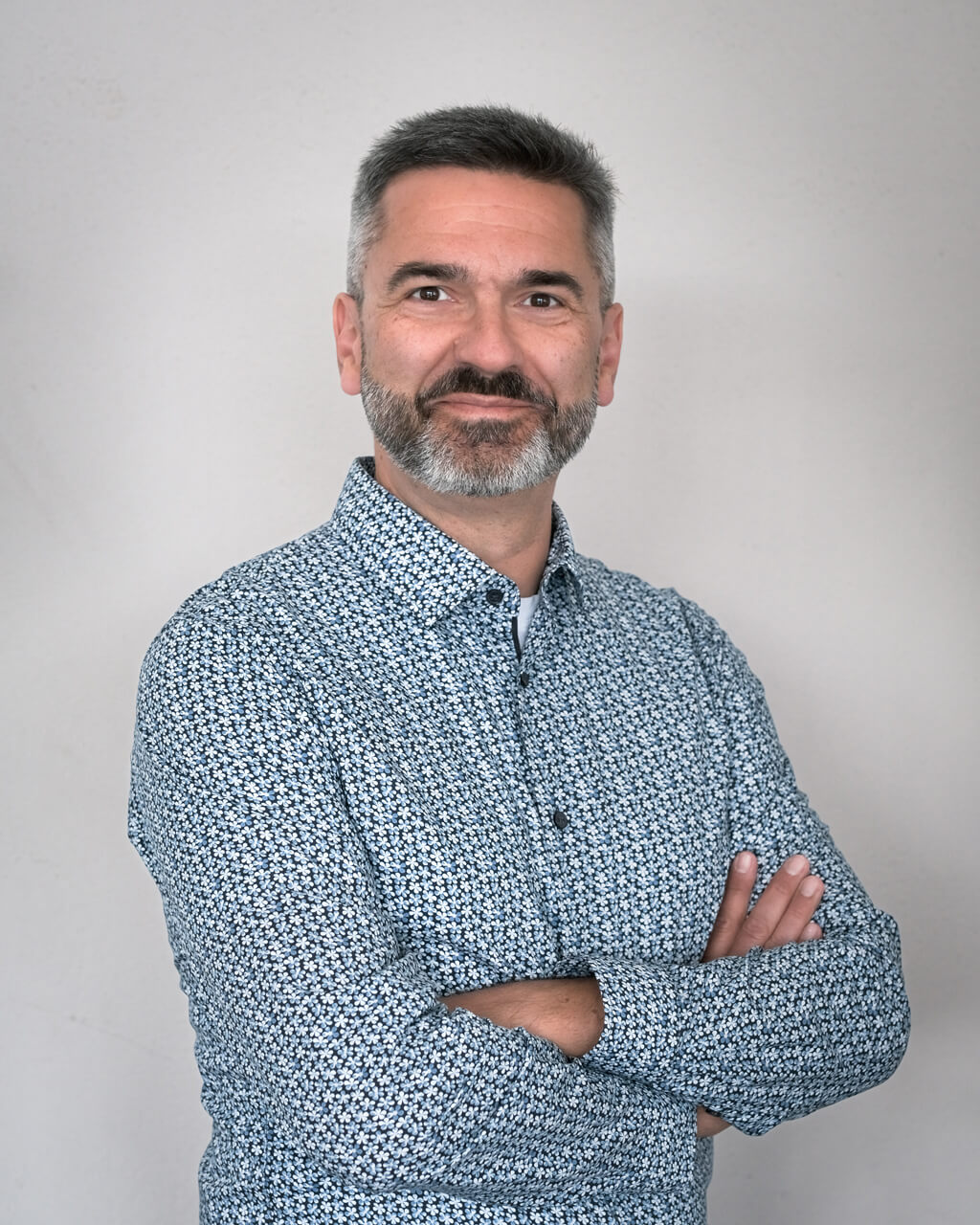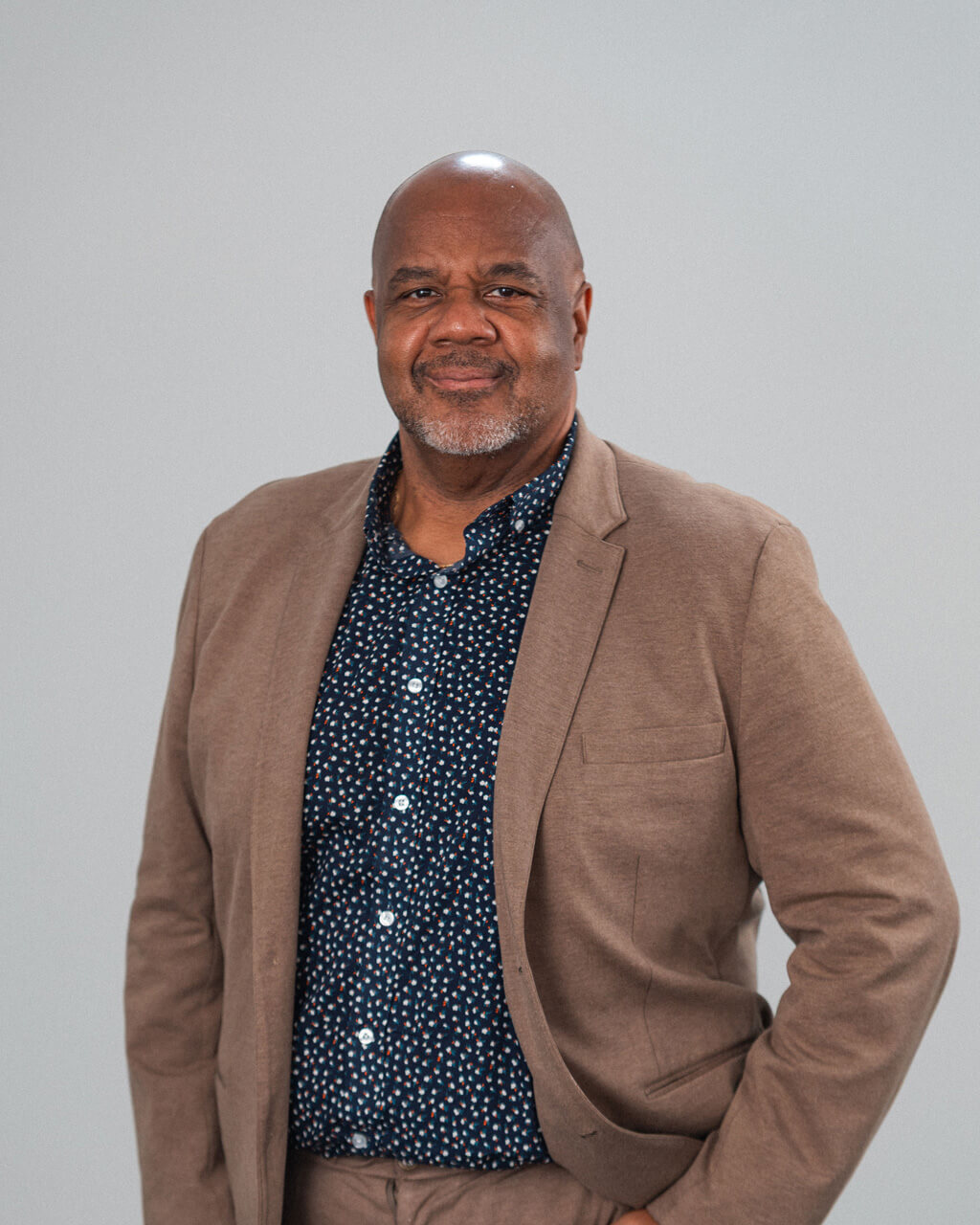
Master of Arts + Master of Industrial and Organizational Psychology
Vancouver
Adler University’s Master of Arts and Master of Industrial and Organizational Psychology prepare leaders to transform workplaces and promote organizational well-being. The program builds a strong foundation in psychology, research, and applied practice, equipping graduates for careers in human resources, consulting, and organizational development.
- 38 credits
- 2-year program, full-time study
- Evening + weekend courses
- Part-time opportunities
- Thesis + capstone options
- Pathway to doctorate
Admission Deadlines
| Term | Priority | Final |
|---|---|---|
| Spring II 2026 | N/A | 2/2/2026 |
| Fall 2026 | 2/15/2026 | 5/15/2026 |
| Summer II 2026 | N/A | 5/29/2026 |
Program overview
Industrial and Organizational (I/O) Psychology is one of the fastest-growing fields, with increasing demand for experts in coaching, training, and workforce optimization. Adler University’s Master of Arts and Master of Industrial and Organizational Psychology (MAIOP | MIOP) prepare graduates to meet these needs and shape the future of work by building healthier, more innovative workplaces.
Students gain practical experience in psychometric assessment, strategic hiring, leadership development, and change management, applying evidence-based strategies that strengthen organizational culture and drive results.
Why choose the MAIOP | MIOP programs?
- Flexible learning options: Courses are primarily held on campus in Vancouver with select online options available. Daytime, evening, weekend, and part-time schedules are available to accommodate working professionals.
- Two pathways: The MAIOP includes a traditional thesis for original research; the MIOP features a capstone project focused on applied solutions in organizational settings.
- Comprehensive and practical curriculum: Combines psychological theory, evidence-based practices, and organizational science to address real-world workplace challenges.
- Immersive learning: A 240-hour Organizational Development Practicum places students in organizations to implement strategic solutions.
- Professional standards alignment: Meets the standards of APA Division 14 (Society for Industrial and Organizational Psychology), the Canadian Society of Industrial Organizational Psychology, Society for Human Resource Management (SHRM), Chartered Professionals in Human Resources, and the Academy of Management.
Thesis + CAPSTONE
Students can choose between a thesis or capstone. Both follow a structured format that guides students through creating comprehensive, in-depth research projects. Producing rigorous, high-quality work strengthens analytical abilities and writing skills, fostering readiness for leadership roles and advancing professional impact.
Thesis | MAIOP
The MAIOP is designed for those interested in conducting primary research and tackling real-world organizational challenges through a traditional thesis process. Under the mentorship of a faculty supervisor and committee, students develop and engage in real-time, original studies with people. This direct research experience enables them to explore critical workplace issues and contribute innovative, evidence-based solutions.
Capstone | MIOP
Instead of a thesis, the MIOP concludes with an applied research project focused on addressing real-world organizational challenges. Through a critical analysis of existing literature, students generate meaningful insights and practical recommendations to improve workplace systems and outcomes.
Careers That transform workplaces
Workplace psychology expertise translates into careers that influence leadership, culture, and well-being across sectors.

Human Resources + Talent Acquisition
Design and implement strategies to recruit, develop, and retain employees across industries. Human Resources and Talent Acquisition professionals manage hiring processes, workforce planning, and employee engagement while ensuring compliance with organizational policies and employment law. By shaping workplace culture and aligning talent with organizational goals, they play a vital role in building effective, motivated, and sustainable teams.

LEADERSHIP + EXECUTIVE COACHING
Work with individuals and teams to enhance leadership capacity, improve decision-making, and guide organizational growth. Leadership and Executive Coaches assess strengths and areas for development, design tailored coaching strategies, and support leaders in navigating challenges, fostering collaboration, and driving performance. Through their work, they help organizations build resilient, adaptive, and effective leadership at every level.

Organizational Development + Change Management
Design and implement strategies that improve workplace effectiveness and help organizations adapt to evolving needs. Organizational Development and Change Management Professionals analyze systems, processes, and culture; guide leaders and teams through transitions; and apply evidence-based practices to strengthen performance and resilience. Their work ensures organizations can manage change successfully while fostering healthy, sustainable growth.
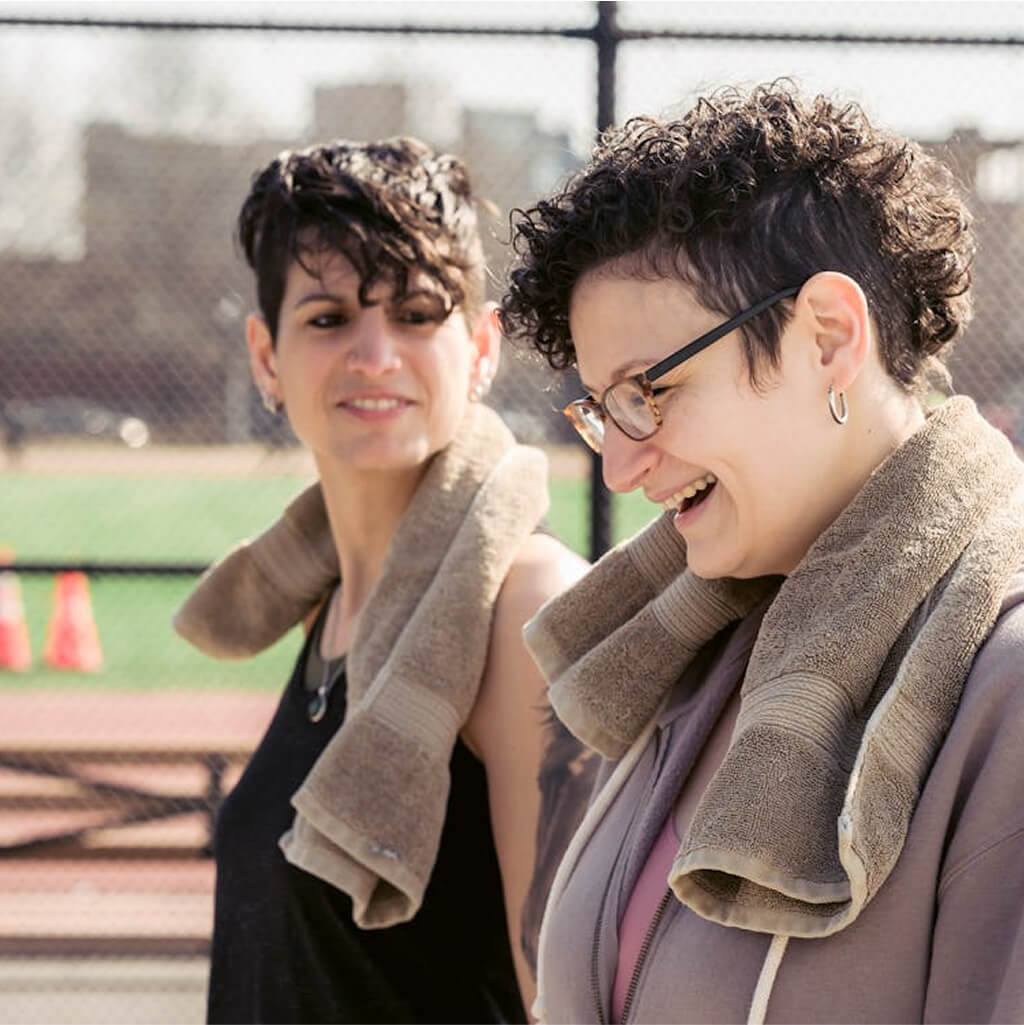
Workplace Wellness
Create programs and initiatives that promote employee well-being, engagement, and a positive organizational culture. Workplace Wellness Professionals design and evaluate corporate wellness strategies, support mental health and work-life balance, and develop practices that foster belonging and inclusion. By addressing both individual needs and systemic barriers, they help organizations cultivate healthier, more productive, and sustainable workplaces.

Research + Behavioural Analytics
Study human behaviour in organizational settings to generate insights that inform strategy and decision-making. Research and Behavioural Analytics Professionals design and conduct studies, analyze data on workplace performance and culture, and translate findings into practical recommendations. Their work helps organizations understand employee needs, predict trends, and implement evidence-based solutions that drive effectiveness and innovation.
Admissions requirements
Eligibility
Applicants to the MAIOP or MIOP program must meet the following requirements:
- A baccalaureate degree or equivalent from an accredited institution.
- Evidence of interest and experience in social change efforts.
- A GPA of 3.0 or higher for all undergraduate or graduate coursework.
For International Students
- 92 or better on the Internet-based TOEFL (iBT) with no band lower than 22.
- 7.0 IELTS Academic overall with no bands below 6.5.
- PTE must have a minimum score of 66.
Application Requirements
Applicants are required to submit the following items to be considered for admission:
- Application fee.
- Completed application submitted via the online portal.
- Statement of Intent.
- Official transcripts from all undergraduate and graduate schools attended (U.S. and Canada). International transcripts must be evaluated by a transcript evaluation service.
Statement of Intent
Applicants are required to provide a statement of intent answering the following questions. They should be 2-3 pages, double-spaced.
- Who are you and what is your background?
- What ignited your passion for psychology?
- Why are you interested in your chosen field and program?
- Why are you interested in the master’s program at Adler University?
- Where do you see yourself in future practice?
- What is your greatest strength and area for improvement, academically and professionally?
How to Apply + Submit Transcripts
- Visit Adler University’s online application portal, create an account, and submit your application, fee, Statement of Intent, resume/CV, and references’ details.
- Have official transcripts sent directly from each issuing institution or approved service to the Office of Admissions prior to the application deadline. Do not upload official copies to the portal.
Official electronic transcripts should be sent to admissions@adler.edu.
Physical transcripts should be sent to:
Adler University – Office of Admissions
520 Seymour Street
Vancouver, BC V6B 3J5
Curriculum | Internships | practicums
The comprehensive curriculum aligns with many of the standards and best practices of professional organizations, including the American Psychological Association’s Division 14 (Society for Industrial and Organizational Psychology), the Academy of Management (AOM), the Canadian Society for Industrial and Organizational Psychology (CSIOP) under the Canadian Psychological Association, the Chartered Professionals in Human Resources (CPHR), and the Society for Human Resource Management (SHRM).
Completion of the program includes the courses below, along with additional requirements outlined in the Adler University catalogue.
CORE COURSES
Leadership Development
Addresses the principles of identifying and developing individual leader potential and organizational leadership capacity.
Consulting Skills
Designed to help the student develop the “core” organizational consulting skills. These include relationship skills with internal and external consulting clients, contracting, managing and delivering responses to requests for proposals (RFP’s), designing and delivering a training intervention, and the role and expectations of a consultant.
Communication Theory and Practice
This course focuses on being an effective consultant. Acting as an effective consultant requires various skills including accurate self-awareness and effective interpersonal communication skills
Introduction to Industrial-Organizational Psychology
Introduction to the core domains of the Industrial Organizational (I/O) Psychology. Students will be introduced to the field of I/O psychology and its core principles and practices.
Psychometrics Lab
With the increasing demand in evaluating the outcomes of organizational development initiatives, practitioners need to focus on the collection of valid and reliable data to inform policy decisions and to demonstrate to the funding authorities the effectiveness of their interventions.
Statistical Methods at Work
This course is designed to provide students with knowledge and skills relevant to application of statistical analyses that are essential to supplement organizational effectiveness.
Organizational Change and Development
Analysis of structures, culture, and leadership of organizations and how they differ. The majority of the course addresses the theories, activities, challenges and ethics of change-management initiatives affecting work units, task groups and individuals and the role of the consultant in these processes.
Social Psychology and Well-Being
Focuses on the social psychology concepts and processes to understand the interaction between self, people, and organizations. It addresses, the interplay between social psychological processes and organizational systems, and how these processes shape individual and organizational well-being.
THESIS OR CAPSTONE
Students select either the capstone course, or the three-course thesis series.
Capstone
The Capstone course provides students with a unique opportunity to complete a project that will reflect their learning and training experiences throughout the program.
Thesis 1
This course represents the first phase of the thesis. The MA Thesis is a student-directed study conducted in consultation with an assigned Chair in an area of applied psychology with relevance to the curriculum.
Thesis 2
This course represents the second phase of the thesis. The MA Thesis is a student-directed study conducted in consultation with an assigned Chair in an area of applied psychology with relevance to the curriculum.
Thesis 3
This course represents the third phase of the thesis. The MA Thesis is a student-directed study conducted in consultation with an assigned Chair in an area of applied psychology with relevance to the curriculum.
SOCIAL JUSTICE PRACTICUM
Your opportunity to create lasting change on local and global systems, almost from day 1.
The Social Justice Practicum (SJP) at Adler University is a first-year, non-clinical, community-based experience that reflects Alfred Adler’s concept of social interest. The practicum places students with mission-driven organizations where they complete a minimum of 200 approved hours across two semesters, typically 8–10 hours per week. Alongside their placements, students participate in required workshops. Each practicum is evaluated through midterm and final supervisor reviews, student self-assessments, and feedback on the site and project, with grades of High Pass, Pass, Remediation, or Fail. The experience culminates in a campus-wide presentation of outcomes, assessed by multiple evaluators, offering students both applied training and the opportunity to contribute to meaningful community change.
Organizational Development Practicum
Students complete a 240-hour Organizational Development Practicum, typically over four months at a site two to three days per week. Before starting, faculty review each student’s readiness, and supervision is provided both on-site and by Adler faculty. The practicum builds practitioner capacity by applying program learning in real organizational settings, including HR and OD departments, EAP firms, consulting firms, and nonprofit, public, or private organizations.
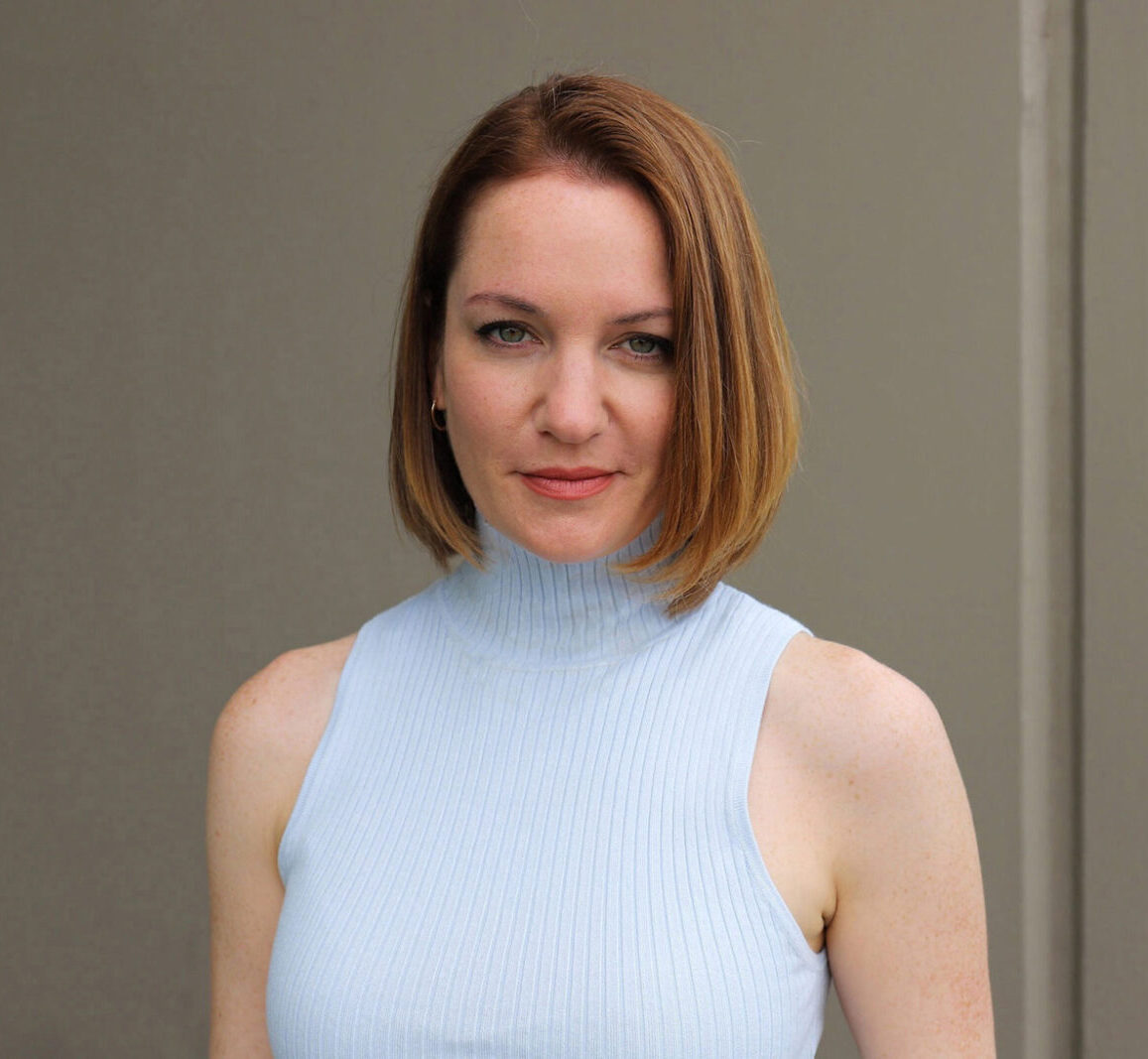
“My time at Adler was formative, and now I want to give back by helping today’s students build their careers. I want my students to be prepared and I want them to achieve even higher successes.”
– Tanis Angove, MA’15, adjunct professor

Financing your degree
Use our tuition calculator to help you start to plan your budget. Financial aid from the government, scholarships, or part-time employment can help you more easily afford your degree.
Please make a selection using the filters above.
Art Therapy | Ph.D.
Year
1Credits
35Tuition
$35,035Fees
$3,222Total
$38,257Term
FallCredits
12Tuition
$12,012Fees
$1,074Total
$13,086Term
SpringCredits
12Tuition
$12,012Fees
$1,074Total
$13,086Term
SummerCredits
11Tuition
$11,011Fees
$1,074Total
$12,085Art Therapy | Ph.D.
Year
1Credits
35Tuition
$35,035Fees
$7,428Total
$42,463Term
FallCredits
12Tuition
$12,012Fees
$2,476Total
$14,488Term
SpringCredits
12Tuition
$12,012Fees
$2,476Total
$14,488Term
SummerCredits
11Tuition
$11,011Fees
$2,476Total
$13,487Art Therapy | Ph.D.
Year
2Credits
18Tuition
$18,018Fees
$3,222Total
$21,240Term
FallCredits
9Tuition
$9,009Fees
$1,074Total
$10,083Term
SpringCredits
7Tuition
$7,007Fees
$1,074Total
$8,081Term
SummerCredits
2Tuition
$2,002Fees
$1,074Total
$3,076Art Therapy | Ph.D.
Year
2Credits
18Tuition
$18,018Fees
$7,428Total
$25,446Term
FallCredits
9Tuition
$9,009Fees
$2,476Total
$11,485Term
SpringCredits
7Tuition
$7,007Fees
$2,476Total
$9,483Term
SummerCredits
2Tuition
$2,002Fees
$2,476Total
$4,478Art Therapy | Ph.D.
Year
3Credits
9Tuition
$9,009Fees
$3,222Total
$12,231Term
FallCredits
3Tuition
$3,003Fees
$1,074Total
$4,077Term
SpringCredits
3Tuition
$3,003Fees
$1,074Total
$4,077Term
SummerCredits
3Tuition
$3,003Fees
$1,074Total
$4,077Art Therapy | Ph.D.
Year
3Credits
9Tuition
$9,009Fees
$7,428Total
$16,437Term
FallCredits
3Tuition
$3,003Fees
$2,476Total
$5,479Term
SpringCredits
3Tuition
$3,003Fees
$2,476Total
$5,479Term
SummerCredits
3Tuition
$3,003Fees
$2,476Total
$5,479Clinical Mental Health Counseling | M.A.
Year
1Credits
18Tuition
$29,106Fees
$1,806Total
$30,912Term
FallCredits
6Tuition
$9,702Fees
$602Total
$10,304Term
SpringCredits
6Tuition
$9,702Fees
$602Total
$10,304Term
SummerCredits
6Tuition
$9,702Fees
$602Total
$10,304Clinical Mental Health Counseling | M.A.
Year
1Credits
18Tuition
$29,106Fees
$6,012Total
$35,118Term
FallCredits
6Tuition
$9,702Fees
$2,004Total
$11,706Term
SpringCredits
6Tuition
$9,702Fees
$2,004Total
$11,706Term
SummerCredits
6Tuition
$9,702Fees
$2,004Total
$11,706Clinical Mental Health Counseling | M.A.
Year
2Credits
20Tuition
$32,340Fees
$1,806Total
$34,146Term
FallCredits
7Tuition
$11,319Fees
$602Total
$11,921Term
SpringCredits
7Tuition
$11,319Fees
$602Total
$11,921Term
SummerCredits
6Tuition
$9,702Fees
$602Total
$10,304Clinical Mental Health Counseling | M.A.
Year
2Credits
20Tuition
$32,340Fees
$6,012Total
$38,352Term
FallCredits
7Tuition
$11,319Fees
$2,004Total
$13,323Term
SpringCredits
7Tuition
$11,319Fees
$2,004Total
$13,323Term
SummerCredits
6Tuition
$9,702Fees
$2,004Total
$11,706Clinical Mental Health Counseling | M.A.
Year
3Credits
18Tuition
$29,106Fees
$1,806Total
$30,912Term
FallCredits
6Tuition
$9,702Fees
$602Total
$10,304Term
SpringCredits
6Tuition
$9,702Fees
$602Total
$10,304Term
SummerCredits
6Tuition
$9,702Fees
$602Total
$10,304Clinical Mental Health Counseling | M.A.
Year
3Credits
18Tuition
$29,106Fees
$6,012Total
$35,118Term
FallCredits
6Tuition
$9,702Fees
$2,004Total
$11,706Term
SpringCredits
6Tuition
$9,702Fees
$2,004Total
$11,706Term
SummerCredits
6Tuition
$9,702Fees
$2,004Total
$11,706Clinical Mental Health Counseling | M.A.
Year
4Credits
6Tuition
$9,702Fees
$1,806Total
$11,508Term
FallCredits
2Tuition
$3,234Fees
$602Total
$3,836Term
SpringCredits
2Tuition
$3,234Fees
$602Total
$3,836Term
SummerCredits
2Tuition
$3,234Fees
$602Total
$3,836Clinical Mental Health Counseling | M.A.
Year
4Credits
6Tuition
$9,702Fees
$6,012Total
$15,714Term
FallCredits
2Tuition
$3,234Fees
$2,004Total
$5,238Term
SpringCredits
2Tuition
$3,234Fees
$2,004Total
$5,238Term
SummerCredits
2Tuition
$3,234Fees
$2,004Total
$5,238Clinical Psychology | Psy.D.
Year
1Credits
36Tuition
$67,644Fees
$2,400Total
$70,044Term
FallCredits
13Tuition
$24,427Fees
$800Total
$25,227Term
SpringCredits
12Tuition
$22,548Fees
$800Total
$23,348Term
SummerCredits
11Tuition
$20,669Fees
$800Total
$21,469Clinical Psychology | Psy.D.
Year
1Credits
36Tuition
$67,644Fees
$6,606Total
$74,250Term
FallCredits
13Tuition
$24,427Fees
$2,202Total
$26,629Term
SpringCredits
12Tuition
$22,548Fees
$2,202Total
$24,750Term
SummerCredits
11Tuition
$20,669Fees
$2,202Total
$22,871Clinical Psychology | Psy.D.
Year
2Credits
36Tuition
$67,644Fees
$2,400Total
$70,044Term
FallCredits
13Tuition
$24,427Fees
$800Total
$25,227Term
SpringCredits
13Tuition
$24,427Fees
$800Total
$25,227Term
SummerCredits
10Tuition
$18,790Fees
$800Total
$19,590Clinical Psychology | Psy.D.
Year
2Credits
36Tuition
$67,644Fees
$6,606Total
$74,250Term
FallCredits
13Tuition
$24,427Fees
$2,202Total
$26,629Term
SpringCredits
13Tuition
$24,427Fees
$2,202Total
$26,629Term
SummerCredits
10Tuition
$18,790Fees
$2,202Total
$20,992Clinical Psychology | Psy.D.
Year
3Credits
25.5Tuition
$47,915Fees
$2,400Total
$50,315Term
FallCredits
10.5Tuition
$19,730Fees
$800Total
$20,530Term
SpringCredits
7.5Tuition
$14,093Fees
$800Total
$14,893Term
SummerCredits
7.5Tuition
$14,093Fees
$800Total
$14,893Clinical Psychology | Psy.D.
Year
3Credits
25.5Tuition
$47,915Fees
$6,606Total
$54,521Term
FallCredits
10.5Tuition
$19,730Fees
$2,202Total
$21,932Term
SpringCredits
7.5Tuition
$14,093Fees
$2,202Total
$16,295Term
SummerCredits
7.5Tuition
$14,093Fees
$2,202Total
$16,295Clinical Psychology | Psy.D.
Year
4Credits
16.5Tuition
$31,004Fees
$2,400Total
$33,404Term
FallCredits
8.5Tuition
$15,972Fees
$800Total
$16,772Term
SpringCredits
4.5Tuition
$8,456Fees
$800Total
$9,256Term
SummerCredits
3.5Tuition
$6,577Fees
$800Total
$7,377Clinical Psychology | Psy.D.
Year
4Credits
16.5Tuition
$31,004Fees
$6,606Total
$37,610Term
FallCredits
8.5Tuition
$15,972Fees
$2,202Total
$18,174Term
SpringCredits
4.5Tuition
$8,456Fees
$2,202Total
$10,658Term
SummerCredits
3.5Tuition
$6,577Fees
$2,202Total
$8,779Clinical Psychology | Psy.D.
Year
5Credits
0Tuition
$0Fees
$2,400Total
$2,400Term
FallCredits
0Tuition
$0Fees
$800Total
$800Term
SpringCredits
0Tuition
$0Fees
$800Total
$800Term
SummerCredits
0Tuition
$0Fees
$800Total
$800Clinical Psychology | Psy.D.
Year
5Credits
0Tuition
$0Fees
$6,606Total
$6,606Term
FallCredits
0Tuition
$0Fees
$2,202Total
$2,202Term
SpringCredits
0Tuition
$0Fees
$2,202Total
$2,202Term
SummerCredits
0Tuition
$0Fees
$2,202Total
$2,202Clinical Psychology | Psy.D.
Year
1Credits
42Tuition
$56,574Fees
$2,140Total
$58,714Term
FallCredits
15Tuition
$20,205Fees
$1,060Total
$21,265Term
SpringCredits
14Tuition
$18,858Fees
$540Total
$19,398Term
SummerCredits
13Tuition
$17,511Fees
$540Total
$18,051**Student Care is a student led health care plan and rates are likely to change each year; opt out with proof of other insurance is available
Clinical Psychology | Psy.D.
Year
1Credits
42Tuition
$56,574Fees
$6,340Total
$62,914Term
FallCredits
15Tuition
$20,205Fees
$2,460Total
$22,665Term
SpringCredits
14Tuition
$18,858Fees
$1,940Total
$20,798Term
SummerCredits
13Tuition
$17,511Fees
$1,940Total
$19,451**Student Care is a student led health care plan and rates are likely to change each year; opt out with proof of other insurance is available
Clinical Psychology | Psy.D.
Year
2Credits
24Tuition
$32,328Fees
$2,140Total
$34,468Term
FallCredits
8Tuition
$10,776Fees
$1,060Total
$11,836Term
SpringCredits
8Tuition
$10,776Fees
$540Total
$11,316Term
SummerCredits
8Tuition
$10,776Fees
$540Total
$11,316**Student Care is a student led health care plan and rates are likely to change each year; opt out with proof of other insurance is available
Clinical Psychology | Psy.D.
Year
2Credits
24Tuition
$32,328Fees
$6,340Total
$38,668Term
FallCredits
8Tuition
$10,776Fees
$2,460Total
$13,236Term
SpringCredits
8Tuition
$10,776Fees
$1,940Total
$12,716Term
SummerCredits
8Tuition
$10,776Fees
$1,940Total
$12,716**Student Care is a student led health care plan and rates are likely to change each year; opt out with proof of other insurance is available
Clinical Psychology | Psy.D.
Year
3Credits
20Tuition
$26,940Fees
$4,834Total
$31,774Term
FallCredits
8Tuition
$10,776Fees
$1,060Total
$11,836Term
SpringCredits
9Tuition
$12,123Fees
$540Total
$12,663Term
SummerCredits
3Tuition
$4,041Fees
$3,234Total
$7,275**Student Care is a student led health care plan and rates are likely to change each year; opt out with proof of other insurance is available
Clinical Psychology | Psy.D.
Year
3Credits
20Tuition
$26,940Fees
$9,034Total
$35,974Term
FallCredits
8Tuition
$10,776Fees
$2,460Total
$13,236Term
SpringCredits
9Tuition
$12,123Fees
$1,940Total
$14,063Term
SummerCredits
3Tuition
$4,041Fees
$4,634Total
$8,675**Student Care is a student led health care plan and rates are likely to change each year; opt out with proof of other insurance is available
Clinical Psychology | Psy.D.
Year
4Credits
18Tuition
$24,246Fees
$2,140Total
$26,386Term
FallCredits
7Tuition
$9,429Fees
$1,060Total
$10,489Term
SpringCredits
4Tuition
$5,388Fees
$540Total
$5,928Term
SummerCredits
7Tuition
$9,429Fees
$540Total
$9,969**Student Care is a student led health care plan and rates are likely to change each year; opt out with proof of other insurance is available
Clinical Psychology | Psy.D.
Year
4Credits
18Tuition
$24,246Fees
$6,340Total
$30,586Term
FallCredits
7Tuition
$9,429Fees
$2,460Total
$11,889Term
SpringCredits
4Tuition
$5,388Fees
$1,940Total
$7,328Term
SummerCredits
7Tuition
$9,429Fees
$1,940Total
$11,369**Student Care is a student led health care plan and rates are likely to change each year; opt out with proof of other insurance is available
Clinical Psychology | Psy.D.
Year
5Credits
3Tuition
$4,041Fees
$2,140Total
$6,181Term
FallCredits
1Tuition
$1,347Fees
$1,060Total
$2,407Term
SpringCredits
1Tuition
$1,347Fees
$540Total
$1,887Term
SummerCredits
1Tuition
$1,347Fees
$540Total
$1,887**Student Care is a student led health care plan and rates are likely to change each year; opt out with proof of other insurance is available
Clinical Psychology | Psy.D.
Year
5Credits
3Tuition
$4,041Fees
$6,340Total
$10,381Term
FallCredits
1Tuition
$1,347Fees
$2,460Total
$3,807Term
SpringCredits
1Tuition
$1,347Fees
$1,940Total
$3,287Term
SummerCredits
1Tuition
$1,347Fees
$1,940Total
$3,287**Student Care is a student led health care plan and rates are likely to change each year; opt out with proof of other insurance is available
Counseling: Art Therapy | M.A.
Year
1Credits
38Tuition
$61,446Fees
$1,434Total
$62,880Term
FallCredits
14Tuition
$22,638Fees
$478Total
$23,116Term
SpringCredits
12Tuition
$19,404Fees
$478Total
$19,882Term
SummerCredits
12Tuition
$19,404Fees
$478Total
$19,882Counseling: Art Therapy | M.A.
Year
1Credits
38Tuition
$61,446Fees
$5,640Total
$67,086Term
FallCredits
14Tuition
$22,638Fees
$1,880Total
$24,518Term
SpringCredits
12Tuition
$19,404Fees
$1,880Total
$21,284Term
SummerCredits
12Tuition
$19,404Fees
$1,880Total
$21,284Counseling: Art Therapy | M.A.
Year
2Credits
28Tuition
$45,276Fees
$1,434Total
$46,710Term
FallCredits
12Tuition
$19,404Fees
$478Total
$19,882Term
SpringCredits
9Tuition
$14,553Fees
$478Total
$15,031Term
SummerCredits
7Tuition
$11,319Fees
$478Total
$11,797Counseling: Art Therapy | M.A.
Year
2Credits
28Tuition
$45,276Fees
$5,640Total
$50,916Term
FallCredits
12Tuition
$19,404Fees
$1,880Total
$21,284Term
SpringCredits
9Tuition
$14,553Fees
$1,880Total
$16,433Term
SummerCredits
7Tuition
$11,319Fees
$1,880Total
$13,199Counselling Psychology | M.A
Year
1Credits
35Tuition
$42,385Fees
$3,585Total
$45,970Term
FallCredits
14Tuition
$16,954Fees
$1,175Total
$18,129Term
SpringCredits
11Tuition
$13,321Fees
$655Total
$13,976Term
SummerCredits
10Tuition
$12,110Fees
$1,755Total
$13,865**Student Care is a student led health care plan and rates are likely to change each year; opt out with proof of other insurance is available
Counselling Psychology | M.A
Year
1Credits
35Tuition
$42,385Fees
$7,785Total
$50,170Term
FallCredits
14Tuition
$16,954Fees
$2,575Total
$19,529Term
SpringCredits
11Tuition
$13,321Fees
$2,055Total
$15,376Term
SummerCredits
10Tuition
$12,110Fees
$3,155Total
$15,265**Student Care is a student led health care plan and rates are likely to change each year; opt out with proof of other insurance is available
Counselling Psychology | M.A
Year
2Credits
24Tuition
$29,064Fees
$3,696Total
$32,760Term
FallCredits
10Tuition
$12,110Fees
$1,175Total
$13,285Term
SpringCredits
7Tuition
$8,477Fees
$655Total
$9,132Term
SummerCredits
7Tuition
$8,477Fees
$1,866Total
$10,343**Student Care is a student led health care plan and rates are likely to change each year; opt out with proof of other insurance is available
Counselling Psychology | M.A
Year
2Credits
24Tuition
$29,064Fees
$7,896Total
$36,960Term
FallCredits
10Tuition
$12,110Fees
$2,575Total
$14,685Term
SpringCredits
7Tuition
$8,477Fees
$2,055Total
$10,532Term
SummerCredits
7Tuition
$8,477Fees
$3,266Total
$11,743**Student Care is a student led health care plan and rates are likely to change each year; opt out with proof of other insurance is available
Counselling Psychology | MCP
Year
1Credits
34Tuition
$41,174Fees
$2,633Total
$43,807Term
FallCredits
14Tuition
$16,954Fees
$511Total
$17,465Term
SpringCredits
11Tuition
$13,321Fees
$511Total
$13,832Term
SummerCredits
9Tuition
$10,899Fees
$1,611Total
$12,510Counselling Psychology | MCP
Year
1Credits
34Tuition
$41,174Fees
$2,633Total
$43,807Term
FallCredits
14Tuition
$16,954Fees
$511Total
$17,465Term
SpringCredits
11Tuition
$13,321Fees
$511Total
$13,832Term
SummerCredits
9Tuition
$10,899Fees
$1,611Total
$12,510Counselling Psychology | MCP
Year
2Credits
21Tuition
$25,431Fees
$2,744Total
$28,175Term
FallCredits
9Tuition
$10,899Fees
$511Total
$11,410Term
SpringCredits
6Tuition
$7,266Fees
$511Total
$7,777Term
SummerCredits
6Tuition
$7,266Fees
$1,722Total
$8,988Counselling Psychology | MCP
Year
2Credits
21Tuition
$25,431Fees
$2,744Total
$28,175Term
FallCredits
9Tuition
$10,899Fees
$511Total
$11,410Term
SpringCredits
6Tuition
$7,266Fees
$511Total
$7,777Term
SummerCredits
6Tuition
$7,266Fees
$1,722Total
$8,988Counselling Psychology: Art Therapy | MCP:AT
Year
1Credits
34Tuition
$41,174Fees
$3,516Total
$44,690Term
FallCredits
11Tuition
$13,321Fees
$1,152Total
$14,473Term
SpringCredits
14Tuition
$16,954Fees
$632Total
$17,586Term
SummerCredits
9Tuition
$10,899Fees
$1,732Total
$12,631**Student Care is a student led health care plan and rates are likely to change each year; opt out with proof of other insurance is available
Counselling Psychology: Art Therapy | MCP:AT
Year
1Credits
34Tuition
$41,174Fees
$7,716Total
$48,890Term
FallCredits
11Tuition
$13,321Fees
$2,552Total
$15,873Term
SpringCredits
14Tuition
$16,954Fees
$2,032Total
$18,986Term
SummerCredits
9Tuition
$10,899Fees
$3,132Total
$14,031**Student Care is a student led health care plan and rates are likely to change each year; opt out with proof of other insurance is available
Counselling Psychology: Art Therapy | MCP:AT
Year
2Credits
26Tuition
$31,486Fees
$3,627Total
$35,113Term
FallCredits
12Tuition
$14,532Fees
$1,152Total
$15,684Term
SpringCredits
12Tuition
$14,532Fees
$632Total
$15,164Term
SummerCredits
2Tuition
$2,422Fees
$1,843Total
$4,265**Student Care is a student led health care plan and rates are likely to change each year; opt out with proof of other insurance is available
Counselling Psychology: Art Therapy | MCP:AT
Year
2Credits
26Tuition
$31,486Fees
$7,827Total
$39,313Term
FallCredits
12Tuition
$14,532Fees
$2,552Total
$17,084Term
SpringCredits
12Tuition
$14,532Fees
$2,032Total
$16,564Term
SummerCredits
2Tuition
$2,422Fees
$3,243Total
$5,665**Student Care is a student led health care plan and rates are likely to change each year; opt out with proof of other insurance is available
Counselling Psychology: School and Youth | M.A.
Year
1Credits
41Tuition
$49,651Fees
$3,585Total
$53,236Term
FallCredits
14Tuition
$16,954Fees
$1,175Total
$18,129Term
SpringCredits
14Tuition
$16,954Fees
$655Total
$17,609Term
SummerCredits
13Tuition
$15,743Fees
$1,755Total
$17,498**Student Care is a student led health care plan and rates are likely to change each year; opt out with proof of other insurance is available
Counselling Psychology: School and Youth | M.A.
Year
1Credits
41Tuition
$49,651Fees
$7,785Total
$57,436Term
FallCredits
14Tuition
$16,954Fees
$2,575Total
$19,529Term
SpringCredits
14Tuition
$16,954Fees
$2,055Total
$19,009Term
SummerCredits
13Tuition
$15,743Fees
$3,155Total
$18,898**Student Care is a student led health care plan and rates are likely to change each year; opt out with proof of other insurance is available
Counselling Psychology: School and Youth | M.A.
Year
2Credits
18Tuition
$21,798Fees
$3,696Total
$25,494Term
FallCredits
4Tuition
$4,844Fees
$1,175Total
$6,019Term
SpringCredits
4Tuition
$4,844Fees
$655Total
$5,499Term
SummerCredits
10Tuition
$12,110Fees
$1,866Total
$13,976**Student Care is a student led health care plan and rates are likely to change each year; opt out with proof of other insurance is available
Counselling Psychology: School and Youth | M.A.
Year
2Credits
18Tuition
$21,798Fees
$7,896Total
$29,694Term
FallCredits
4Tuition
$4,844Fees
$2,575Total
$7,419Term
SpringCredits
4Tuition
$4,844Fees
$2,055Total
$6,899Term
SummerCredits
10Tuition
$12,110Fees
$3,266Total
$15,376**Student Care is a student led health care plan and rates are likely to change each year; opt out with proof of other insurance is available
Counselling Psychology: School and Youth | MCP:SY
Year
1Credits
41Tuition
$49,651Fees
$3,585Total
$53,236Term
FallCredits
14Tuition
$16,954Fees
$1,175Total
$18,129Term
SpringCredits
14Tuition
$16,954Fees
$655Total
$17,609Term
SummerCredits
13Tuition
$15,743Fees
$1,755Total
$17,498**Student Care is a student led health care plan and rates are likely to change each year; opt out with proof of other insurance is available
Counselling Psychology: School and Youth | MCP:SY
Year
1Credits
41Tuition
$49,651Fees
$7,785Total
$57,436Term
FallCredits
14Tuition
$16,954Fees
$2,575Total
$19,529Term
SpringCredits
14Tuition
$16,954Fees
$2,055Total
$19,009Term
SummerCredits
13Tuition
$15,743Fees
$3,155Total
$18,898**Student Care is a student led health care plan and rates are likely to change each year; opt out with proof of other insurance is available
Counselling Psychology: School and Youth | MCP:SY
Year
2Credits
18Tuition
$21,798Fees
$3,696Total
$25,494Term
FallCredits
4Tuition
$4,844Fees
$1,175Total
$6,019Term
SpringCredits
4Tuition
$4,844Fees
$655Total
$5,499Term
SummerCredits
10Tuition
$12,110Fees
$1,866Total
$13,976**Student Care is a student led health care plan and rates are likely to change each year; opt out with proof of other insurance is available
Counselling Psychology: School and Youth | MCP:SY
Year
2Credits
18Tuition
$21,798Fees
$7,896Total
$29,694Term
FallCredits
4Tuition
$4,844Fees
$2,575Total
$7,419Term
SpringCredits
4Tuition
$4,844Fees
$2,055Total
$6,899Term
SummerCredits
10Tuition
$12,110Fees
$3,266Total
$15,376**Student Care is a student led health care plan and rates are likely to change each year; opt out with proof of other insurance is available
Counselor Education + Supervision | Ph.D.
Year
1Credits
27Tuition
$49,005Fees
$1,686Total
$50,691Term
FallCredits
10Tuition
$18,150Fees
$562Total
$18,712Term
SpringCredits
9Tuition
$16,335Fees
$562Total
$16,897Term
SummerCredits
8Tuition
$14,520Fees
$562Total
$15,082Counselor Education + Supervision | Ph.D.
Year
1Credits
27Tuition
$49,005Fees
$5,892Total
$54,897Term
FallCredits
10Tuition
$18,150Fees
$1,964Total
$20,114Term
SpringCredits
9Tuition
$16,335Fees
$1,964Total
$18,299Term
SummerCredits
8Tuition
$14,520Fees
$1,964Total
$16,484Counselor Education + Supervision | Ph.D.
Year
2Credits
19Tuition
$34,485Fees
$1,686Total
$36,171Term
FallCredits
10Tuition
$18,150Fees
$562Total
$18,712Term
SpringCredits
7Tuition
$12,705Fees
$562Total
$13,267Term
SummerCredits
2Tuition
$3,630Fees
$562Total
$4,192Counselor Education + Supervision | Ph.D.
Year
2Credits
19Tuition
$34,485Fees
$5,892Total
$40,377Term
FallCredits
10Tuition
$18,150Fees
$1,964Total
$20,114Term
SpringCredits
7Tuition
$12,705Fees
$1,964Total
$14,669Term
SummerCredits
2Tuition
$3,630Fees
$1,964Total
$5,594Counselor Education + Supervision | Ph.D.
Year
3Credits
14Tuition
$25,410Fees
$1,686Total
$27,096Term
FallCredits
6Tuition
$10,890Fees
$562Total
$11,452Term
SpringCredits
6Tuition
$10,890Fees
$562Total
$11,452Term
SummerCredits
2Tuition
$3,630Fees
$562Total
$4,192Counselor Education + Supervision | Ph.D.
Year
3Credits
14Tuition
$25,410Fees
$5,892Total
$31,302Term
FallCredits
6Tuition
$10,890Fees
$1,964Total
$12,854Term
SpringCredits
6Tuition
$10,890Fees
$1,964Total
$12,854Term
SummerCredits
2Tuition
$3,630Fees
$1,964Total
$5,594Couple + Family Therapy | M.A.
Year
1Credits
30Tuition
$48,510Fees
$1,536Total
$50,046Term
FallCredits
11Tuition
$17,787Fees
$512Total
$18,299Term
SpringCredits
12Tuition
$19,404Fees
$512Total
$19,916Term
SummerCredits
7Tuition
$11,319Fees
$512Total
$11,831Couple + Family Therapy | M.A.
Year
1Credits
30Tuition
$48,510Fees
$5,742Total
$54,252Term
FallCredits
11Tuition
$17,787Fees
$1,914Total
$19,701Term
SpringCredits
12Tuition
$19,404Fees
$1,914Total
$21,318Term
SummerCredits
7Tuition
$11,319Fees
$1,914Total
$13,233Couple + Family Therapy | M.A.
Year
2Credits
27Tuition
$43,659Fees
$1,536Total
$45,195Term
FallCredits
12Tuition
$19,404Fees
$512Total
$19,916Term
SpringCredits
11Tuition
$17,787Fees
$512Total
$18,299Term
SummerCredits
4Tuition
$6,468Fees
$512Total
$6,980Couple + Family Therapy | M.A.
Year
2Credits
27Tuition
$43,659Fees
$5,742Total
$49,401Term
FallCredits
12Tuition
$19,404Fees
$1,914Total
$21,318Term
SpringCredits
11Tuition
$17,787Fees
$1,914Total
$19,701Term
SummerCredits
4Tuition
$6,468Fees
$1,914Total
$8,382Couple + Family Therapy | Ph.D.
Year
1Credits
21Tuition
$38,115Fees
$1,686Total
$39,801Term
FallCredits
7Tuition
$12,705Fees
$562Total
$13,267Term
SpringCredits
10Tuition
$18,150Fees
$562Total
$18,712Term
SummerCredits
4Tuition
$7,260Fees
$562Total
$7,822Couple + Family Therapy | Ph.D.
Year
1Credits
21Tuition
$38,115Fees
$5,892Total
$44,007Term
FallCredits
7Tuition
$12,705Fees
$1,964Total
$14,669Term
SpringCredits
10Tuition
$18,150Fees
$1,964Total
$20,114Term
SummerCredits
4Tuition
$7,260Fees
$1,964Total
$9,224Couple + Family Therapy | Ph.D.
Year
2Credits
27Tuition
$49,005Fees
$1,686Total
$50,691Term
FallCredits
9Tuition
$16,335Fees
$562Total
$16,897Term
SpringCredits
12Tuition
$21,780Fees
$562Total
$22,342Term
SummerCredits
6Tuition
$10,890Fees
$562Total
$11,452Couple + Family Therapy | Ph.D.
Year
2Credits
27Tuition
$49,005Fees
$5,892Total
$54,897Term
FallCredits
9Tuition
$16,335Fees
$1,964Total
$18,299Term
SpringCredits
12Tuition
$21,780Fees
$1,964Total
$23,744Term
SummerCredits
6Tuition
$10,890Fees
$1,964Total
$12,854Couple + Family Therapy | Ph.D.
Year
3Credits
3Tuition
$5,445Fees
$1,686Total
$7,131Term
FallCredits
1Tuition
$1,815Fees
$562Total
$2,377Term
SpringCredits
1Tuition
$1,815Fees
$562Total
$2,377Term
SummerCredits
1Tuition
$1,815Fees
$562Total
$2,377Couple + Family Therapy | Ph.D.
Year
3Credits
3Tuition
$5,445Fees
$5,892Total
$11,337Term
FallCredits
1Tuition
$1,815Fees
$1,964Total
$3,779Term
SpringCredits
1Tuition
$1,815Fees
$1,964Total
$3,779Term
SummerCredits
1Tuition
$1,815Fees
$1,964Total
$3,779Couple + Family Therapy | Ph.D.
Year
4Credits
3Tuition
$5,445Fees
$1,686Total
$7,131Term
FallCredits
1Tuition
$1,815Fees
$562Total
$2,377Term
SpringCredits
1Tuition
$1,815Fees
$562Total
$2,377Term
SummerCredits
1Tuition
$1,815Fees
$562Total
$2,377Couple + Family Therapy | Ph.D.
Year
4Credits
3Tuition
$5,445Fees
$5,892Total
$11,337Term
FallCredits
1Tuition
$1,815Fees
$1,964Total
$3,779Term
SpringCredits
1Tuition
$1,815Fees
$1,964Total
$3,779Term
SummerCredits
1Tuition
$1,815Fees
$1,964Total
$3,779Forensic Mental Health Leadership | M.A.
Year
1Credits
36Tuition
$58,212Fees
$1,536Total
$59,748Term
FallCredits
13Tuition
$21,021Fees
$512Total
$21,533Term
SpringCredits
13Tuition
$21,021Fees
$512Total
$21,533Term
SummerCredits
10Tuition
$16,170Fees
$512Total
$16,682Forensic Mental Health Leadership | M.A.
Year
1Credits
36Tuition
$58,212Fees
$5,742Total
$63,954Term
FallCredits
13Tuition
$21,021Fees
$1,914Total
$22,935Term
SpringCredits
13Tuition
$21,021Fees
$1,914Total
$22,935Term
SummerCredits
10Tuition
$16,170Fees
$1,914Total
$18,084Forensic Mental Health Leadership | M.A.
Year
2Credits
4.5Tuition
$7,277Fees
$512Total
$7,789Term
FallCredits
4.5Tuition
$7,277Fees
$512Total
$7,789Forensic Mental Health Leadership | M.A.
Year
2Credits
4.5Tuition
$7,277Fees
$1,914Total
$9,191Term
FallCredits
4.5Tuition
$7,277Fees
$1,914Total
$9,191Industrial + Organizational Psychology | M.A.
Year
1Credits
21Tuition
$21,021Fees
$3,222Total
$24,243Term
FallCredits
7Tuition
$7,007Fees
$1,074Total
$8,081Term
SpringCredits
7Tuition
$7,007Fees
$1,074Total
$8,081Term
SummerCredits
7Tuition
$7,007Fees
$1,074Total
$8,081Industrial + Organizational Psychology | M.A.
Year
1Credits
21Tuition
$21,021Fees
$7,428Total
$28,449Term
FallCredits
7Tuition
$7,007Fees
$2,476Total
$9,483Term
SpringCredits
7Tuition
$7,007Fees
$2,476Total
$9,483Term
SummerCredits
7Tuition
$7,007Fees
$2,476Total
$9,483Industrial + Organizational Psychology | M.A.
Year
2Credits
15Tuition
$15,015Fees
$3,222Total
$18,237Term
FallCredits
6Tuition
$6,006Fees
$1,074Total
$7,080Term
SpringCredits
6Tuition
$6,006Fees
$1,074Total
$7,080Term
SummerCredits
3Tuition
$3,003Fees
$1,074Total
$4,077Industrial + Organizational Psychology | M.A.
Year
2Credits
15Tuition
$15,015Fees
$7,428Total
$22,443Term
FallCredits
6Tuition
$6,006Fees
$2,476Total
$8,482Term
SpringCredits
6Tuition
$6,006Fees
$2,476Total
$8,482Term
SummerCredits
3Tuition
$3,003Fees
$2,476Total
$5,479Industrial + Organizational Psychology | M.A.
Year
1Credits
27Tuition
$32,697Fees
$1,890Total
$34,587Term
FallCredits
10Tuition
$12,110Fees
$630Total
$12,740Term
SpringCredits
10Tuition
$12,110Fees
$630Total
$12,740Term
SummerCredits
7Tuition
$8,477Fees
$630Total
$9,107Industrial + Organizational Psychology | M.A.
Year
1Credits
27Tuition
$32,697Fees
$6,090Total
$38,787Term
FallCredits
10Tuition
$12,110Fees
$2,030Total
$14,140Term
SpringCredits
10Tuition
$12,110Fees
$2,030Total
$14,140Term
SummerCredits
7Tuition
$8,477Fees
$2,030Total
$10,507Industrial + Organizational Psychology | M.A.
Year
2Credits
11Tuition
$13,321Fees
$1,890Total
$15,211Term
FallCredits
5Tuition
$6,055Fees
$630Total
$6,685Term
SpringCredits
5Tuition
$6,055Fees
$630Total
$6,685Term
SummerCredits
1Tuition
$1,211Fees
$630Total
$1,841Industrial + Organizational Psychology | M.A.
Year
2Credits
11Tuition
$13,321Fees
$6,090Total
$19,411Term
FallCredits
5Tuition
$6,055Fees
$2,030Total
$8,085Term
SpringCredits
5Tuition
$6,055Fees
$2,030Total
$8,085Term
SummerCredits
1Tuition
$1,211Fees
$2,030Total
$3,241Industrial + Organizational Psychology | MIOP
Year
1Credits
27Tuition
$32,697Fees
$2,410Total
$35,107Term
FallCredits
10Tuition
$12,110Fees
$1,150Total
$13,260Term
SpringCredits
10Tuition
$12,110Fees
$630Total
$12,740Term
SummerCredits
7Tuition
$8,477Fees
$630Total
$9,107**Student Care is a student led health care plan and rates are likely to change each year; opt out with proof of other insurance is available
Industrial + Organizational Psychology | MIOP
Year
1Credits
27Tuition
$32,697Fees
$6,610Total
$39,307Term
FallCredits
10Tuition
$12,110Fees
$2,550Total
$14,660Term
SpringCredits
10Tuition
$12,110Fees
$2,030Total
$14,140Term
SummerCredits
7Tuition
$8,477Fees
$2,030Total
$10,507**Student Care is a student led health care plan and rates are likely to change each year; opt out with proof of other insurance is available
Industrial + Organizational Psychology | MIOP
Year
2Credits
11Tuition
$13,321Fees
$2,410Total
$15,731Term
FallCredits
5Tuition
$6,055Fees
$1,150Total
$7,205Term
SpringCredits
5Tuition
$6,055Fees
$630Total
$6,685Term
SummerCredits
1Tuition
$1,211Fees
$630Total
$1,841**Student Care is a student led health care plan and rates are likely to change each year; opt out with proof of other insurance is available
Industrial + Organizational Psychology | MIOP
Year
2Credits
11Tuition
$13,321Fees
$6,610Total
$19,931Term
FallCredits
5Tuition
$6,055Fees
$2,550Total
$8,605Term
SpringCredits
5Tuition
$6,055Fees
$2,030Total
$8,085Term
SummerCredits
1Tuition
$1,211Fees
$2,030Total
$3,241**Student Care is a student led health care plan and rates are likely to change each year; opt out with proof of other insurance is available
Industrial + Organizational Psychology | Ph.D.
Year
1Credits
21Tuition
$21,021Fees
$3,222Total
$24,243Term
FallCredits
7Tuition
$7,007Fees
$1,074Total
$8,081Term
SpringCredits
7Tuition
$7,007Fees
$1,074Total
$8,081Term
SummerCredits
7Tuition
$7,007Fees
$1,074Total
$8,081Industrial + Organizational Psychology | Ph.D.
Year
1Credits
21Tuition
$21,021Fees
$7,428Total
$28,449Term
FallCredits
7Tuition
$7,007Fees
$2,476Total
$9,483Term
SpringCredits
7Tuition
$7,007Fees
$2,476Total
$9,483Term
SummerCredits
7Tuition
$7,007Fees
$2,476Total
$9,483Industrial + Organizational Psychology | Ph.D.
Year
2Credits
21Tuition
$21,021Fees
$3,222Total
$24,243Term
FallCredits
7Tuition
$7,007Fees
$1,074Total
$8,081Term
SpringCredits
7Tuition
$7,007Fees
$1,074Total
$8,081Term
SummerCredits
7Tuition
$7,007Fees
$1,074Total
$8,081Industrial + Organizational Psychology | Ph.D.
Year
2Credits
21Tuition
$21,021Fees
$7,428Total
$28,449Term
FallCredits
7Tuition
$7,007Fees
$2,476Total
$9,483Term
SpringCredits
7Tuition
$7,007Fees
$2,476Total
$9,483Term
SummerCredits
7Tuition
$7,007Fees
$2,476Total
$9,483Industrial + Organizational Psychology | Ph.D.
Year
3Credits
19.5Tuition
$19,520Fees
$3,222Total
$22,742Term
FallCredits
6.5Tuition
$6,507Fees
$1,074Total
$7,581Term
SpringCredits
6.5Tuition
$6,507Fees
$1,074Total
$7,581Term
SummerCredits
6.5Tuition
$6,507Fees
$1,074Total
$7,581Industrial + Organizational Psychology | Ph.D.
Year
3Credits
19.5Tuition
$19,520Fees
$7,428Total
$26,948Term
FallCredits
6.5Tuition
$6,507Fees
$2,476Total
$8,983Term
SpringCredits
6.5Tuition
$6,507Fees
$2,476Total
$8,983Term
SummerCredits
6.5Tuition
$6,507Fees
$2,476Total
$8,983Industrial + Organizational Psychology | Ph.D.
Year
4Credits
4.5Tuition
$4,505Fees
$3,222Total
$7,727Term
FallCredits
1.5Tuition
$1,502Fees
$1,074Total
$2,576Term
SpringCredits
1.5Tuition
$1,502Fees
$1,074Total
$2,576Term
SummerCredits
1.5Tuition
$1,502Fees
$1,074Total
$2,576Industrial + Organizational Psychology | Ph.D.
Year
4Credits
4.5Tuition
$4,505Fees
$7,428Total
$11,933Term
FallCredits
1.5Tuition
$1,502Fees
$2,476Total
$3,978Term
SpringCredits
1.5Tuition
$1,502Fees
$2,476Total
$3,978Term
SummerCredits
1.5Tuition
$1,502Fees
$2,476Total
$3,978Military Psychology | M.A.
Year
1Credits
21Tuition
$21,021Fees
$3,222Total
$24,243Term
FallCredits
7Tuition
$7,007Fees
$1,074Total
$8,081Term
SpringCredits
7Tuition
$7,007Fees
$1,074Total
$8,081Term
SummerCredits
7Tuition
$7,007Fees
$1,074Total
$8,081Military Psychology | M.A.
Year
1Credits
21Tuition
$21,021Fees
$7,428Total
$28,449Term
FallCredits
7Tuition
$7,007Fees
$2,476Total
$9,483Term
SpringCredits
7Tuition
$7,007Fees
$2,476Total
$9,483Term
SummerCredits
7Tuition
$7,007Fees
$2,476Total
$9,483Military Psychology | M.A.
Year
2Credits
15Tuition
$15,015Fees
$3,222Total
$18,237Term
FallCredits
6Tuition
$6,006Fees
$1,074Total
$7,080Term
SpringCredits
6Tuition
$6,006Fees
$1,074Total
$7,080Term
SummerCredits
3Tuition
$3,003Fees
$1,074Total
$4,077Military Psychology | M.A.
Year
2Credits
15Tuition
$15,015Fees
$7,428Total
$22,443Term
FallCredits
6Tuition
$6,006Fees
$2,476Total
$8,482Term
SpringCredits
6Tuition
$6,006Fees
$2,476Total
$8,482Term
SummerCredits
3Tuition
$3,003Fees
$2,476Total
$5,479Organizational Leadership | M.A.
Year
1Credits
21Tuition
$21,021Fees
$3,222Total
$24,243Term
FallCredits
7Tuition
$7,007Fees
$1,074Total
$8,081Term
SpringCredits
7Tuition
$7,007Fees
$1,074Total
$8,081Term
SummerCredits
7Tuition
$7,007Fees
$1,074Total
$8,081Organizational Leadership | M.A.
Year
1Credits
21Tuition
$21,021Fees
$7,428Total
$28,449Term
FallCredits
7Tuition
$7,007Fees
$2,476Total
$9,483Term
SpringCredits
7Tuition
$7,007Fees
$2,476Total
$9,483Term
SummerCredits
7Tuition
$7,007Fees
$2,476Total
$9,483Organizational Leadership | M.A.
Year
2Credits
15Tuition
$15,015Fees
$3,222Total
$18,237Term
FallCredits
6Tuition
$6,006Fees
$1,074Total
$7,080Term
SpringCredits
6Tuition
$6,006Fees
$1,074Total
$7,080Term
SummerCredits
3Tuition
$3,003Fees
$1,074Total
$4,077Organizational Leadership | M.A.
Year
2Credits
15Tuition
$15,015Fees
$7,428Total
$22,443Term
FallCredits
6Tuition
$6,006Fees
$2,476Total
$8,482Term
SpringCredits
6Tuition
$6,006Fees
$2,476Total
$8,482Term
SummerCredits
3Tuition
$3,003Fees
$2,476Total
$5,479Organizational Leadership | Ph.D.
Year
1Credits
21Tuition
$21,021Fees
$3,222Total
$24,243Term
FallCredits
7Tuition
$7,007Fees
$1,074Total
$8,081Term
SpringCredits
7Tuition
$7,007Fees
$1,074Total
$8,081Term
SummerCredits
7Tuition
$7,007Fees
$1,074Total
$8,081Organizational Leadership | Ph.D.
Year
1Credits
21Tuition
$21,021Fees
$7,428Total
$28,449Term
FallCredits
7Tuition
$7,007Fees
$2,476Total
$9,483Term
SpringCredits
7Tuition
$7,007Fees
$2,476Total
$9,483Term
SummerCredits
7Tuition
$7,007Fees
$2,476Total
$9,483Organizational Leadership | Ph.D.
Year
2Credits
22.5Tuition
$22,523Fees
$3,222Total
$25,745Term
FallCredits
7.5Tuition
$7,508Fees
$1,074Total
$8,582Term
SpringCredits
7.5Tuition
$7,508Fees
$1,074Total
$8,582Term
SummerCredits
7.5Tuition
$7,508Fees
$1,074Total
$8,582Organizational Leadership | Ph.D.
Year
2Credits
22.5Tuition
$22,523Fees
$7,428Total
$29,951Term
FallCredits
7.5Tuition
$7,508Fees
$2,476Total
$9,984Term
SpringCredits
7.5Tuition
$7,508Fees
$2,476Total
$9,984Term
SummerCredits
7.5Tuition
$7,508Fees
$2,476Total
$9,984Organizational Leadership | Ph.D.
Year
3Credits
22.5Tuition
$22,523Fees
$3,222Total
$25,745Term
FallCredits
7.5Tuition
$7,508Fees
$1,074Total
$8,582Term
SpringCredits
7.5Tuition
$7,508Fees
$1,074Total
$8,582Term
SummerCredits
7.5Tuition
$7,508Fees
$1,074Total
$8,582Organizational Leadership | Ph.D.
Year
3Credits
22.5Tuition
$22,523Fees
$7,428Total
$29,951Term
FallCredits
7.5Tuition
$7,508Fees
$2,476Total
$9,984Term
SpringCredits
7.5Tuition
$7,508Fees
$2,476Total
$9,984Term
SummerCredits
7.5Tuition
$7,508Fees
$2,476Total
$9,984Psychology | M.A.
Year
1Credits
21Tuition
$21,021Fees
$3,222Total
$24,243Term
FallCredits
7Tuition
$7,007Fees
$1,074Total
$8,081Term
SpringCredits
7Tuition
$7,007Fees
$1,074Total
$8,081Term
SummerCredits
7Tuition
$7,007Fees
$1,074Total
$8,081Psychology | M.A.
Year
1Credits
21Tuition
$21,021Fees
$7,428Total
$28,449Term
FallCredits
7Tuition
$7,007Fees
$2,476Total
$9,483Term
SpringCredits
7Tuition
$7,007Fees
$2,476Total
$9,483Term
SummerCredits
7Tuition
$7,007Fees
$2,476Total
$9,483Psychology | M.A.
Year
2Credits
15Tuition
$15,015Fees
$3,222Total
$18,237Term
FallCredits
6Tuition
$6,006Fees
$1,074Total
$7,080Term
SpringCredits
6Tuition
$6,006Fees
$1,074Total
$7,080Term
SummerCredits
3Tuition
$3,003Fees
$1,074Total
$4,077Psychology | M.A.
Year
2Credits
15Tuition
$15,015Fees
$7,428Total
$22,443Term
FallCredits
6Tuition
$6,006Fees
$2,476Total
$8,482Term
SpringCredits
6Tuition
$6,006Fees
$2,476Total
$8,482Term
SummerCredits
3Tuition
$3,003Fees
$2,476Total
$5,479Psychology: Health + Wellness | M.Psych
Year
1Credits
21Tuition
$25,431Fees
$1,867Total
$27,298Term
FallCredits
7Tuition
$8,477Fees
$969Total
$9,446Term
SpringCredits
7Tuition
$8,477Fees
$449Total
$8,926Term
SummerCredits
7Tuition
$8,477Fees
$449Total
$8,926**Student Care is a student led health care plan and rates are likely to change each year; opt out with proof of other insurance is available
Psychology: Health + Wellness | M.Psych
Year
1Credits
21Tuition
$25,431Fees
$6,067Total
$31,498Term
FallCredits
7Tuition
$8,477Fees
$2,369Total
$10,846Term
SpringCredits
7Tuition
$8,477Fees
$1,849Total
$10,326Term
SummerCredits
7Tuition
$8,477Fees
$1,849Total
$10,326**Student Care is a student led health care plan and rates are likely to change each year; opt out with proof of other insurance is available
Psychology: Health + Wellness | M.Psych
Year
2Credits
15Tuition
$18,165Fees
$1,867Total
$20,032Term
FallCredits
5Tuition
$6,055Fees
$969Total
$7,024Term
SpringCredits
4Tuition
$4,844Fees
$449Total
$5,293Term
SummerCredits
6Tuition
$7,266Fees
$449Total
$7,715**Student Care is a student led health care plan and rates are likely to change each year; opt out with proof of other insurance is available
Psychology: Health + Wellness | M.Psych
Year
2Credits
15Tuition
$18,165Fees
$6,067Total
$24,232Term
FallCredits
5Tuition
$6,055Fees
$2,369Total
$8,424Term
SpringCredits
4Tuition
$4,844Fees
$1,849Total
$6,693Term
SummerCredits
6Tuition
$7,266Fees
$1,849Total
$9,115**Student Care is a student led health care plan and rates are likely to change each year; opt out with proof of other insurance is available
Sex Therapy | CERT
Year
1Credits
10Tuition
$10,300Fees
$666Total
$10,966Term
FallCredits
4Tuition
$4,120Fees
$222Total
$4,342Term
SpringCredits
3Tuition
$3,090Fees
$222Total
$3,312Term
SummerCredits
3Tuition
$3,090Fees
$222Total
$3,312Sex Therapy | CERT
Year
1Credits
10Tuition
$10,300Fees
$4,872Total
$15,172Term
FallCredits
4Tuition
$4,120Fees
$1,624Total
$5,744Term
SpringCredits
3Tuition
$3,090Fees
$1,624Total
$4,714Term
SummerCredits
3Tuition
$3,090Fees
$1,624Total
$4,714Sport + Human Performance | M.S.
Year
1Credits
23Tuition
$37,191Fees
$624Total
$37,815Term
FallCredits
10Tuition
$16,170Fees
$208Total
$16,378Term
SpringCredits
10Tuition
$16,170Fees
$208Total
$16,378Term
SummerCredits
3Tuition
$4,851Fees
$208Total
$5,059Sport + Human Performance | M.S.
Year
1Credits
23Tuition
$37,191Fees
$4,830Total
$42,021Term
FallCredits
10Tuition
$16,170Fees
$1,610Total
$17,780Term
SpringCredits
10Tuition
$16,170Fees
$1,610Total
$17,780Term
SummerCredits
3Tuition
$4,851Fees
$1,610Total
$6,461Sport + Human Performance | M.S.
Year
2Credits
15Tuition
$24,255Fees
$624Total
$24,879Term
FallCredits
9Tuition
$14,553Fees
$208Total
$14,761Term
SpringCredits
4Tuition
$6,468Fees
$208Total
$6,676Term
SummerCredits
2Tuition
$3,234Fees
$208Total
$3,442Sport + Human Performance | M.S.
Year
2Credits
15Tuition
$24,255Fees
$4,830Total
$29,085Term
FallCredits
9Tuition
$14,553Fees
$1,610Total
$16,163Term
SpringCredits
4Tuition
$6,468Fees
$1,610Total
$8,078Term
SummerCredits
2Tuition
$3,234Fees
$1,610Total
$4,844Please make a selection using the filters above.
Art Therapy | Ph.D.
Year
1Credits
35Tuition
$35,035Fees
$3,222Total
$38,257Term
FallCredits
12Tuition
$12,012Fees
$1,074Total
$13,086Term
SpringCredits
12Tuition
$12,012Fees
$1,074Total
$13,086Term
SummerCredits
11Tuition
$11,011Fees
$1,074Total
$12,085Art Therapy | Ph.D.
Year
1Credits
35Tuition
$35,035Fees
$7,428Total
$42,463Term
FallCredits
12Tuition
$12,012Fees
$2,476Total
$14,488Term
SpringCredits
12Tuition
$12,012Fees
$2,476Total
$14,488Term
SummerCredits
11Tuition
$11,011Fees
$2,476Total
$13,487Art Therapy | Ph.D.
Year
2Credits
18Tuition
$18,018Fees
$3,222Total
$21,240Term
FallCredits
9Tuition
$9,009Fees
$1,074Total
$10,083Term
SpringCredits
7Tuition
$7,007Fees
$1,074Total
$8,081Term
SummerCredits
2Tuition
$2,002Fees
$1,074Total
$3,076Art Therapy | Ph.D.
Year
2Credits
18Tuition
$18,018Fees
$7,428Total
$25,446Term
FallCredits
9Tuition
$9,009Fees
$2,476Total
$11,485Term
SpringCredits
7Tuition
$7,007Fees
$2,476Total
$9,483Term
SummerCredits
2Tuition
$2,002Fees
$2,476Total
$4,478Art Therapy | Ph.D.
Year
3Credits
9Tuition
$9,009Fees
$3,222Total
$12,231Term
FallCredits
3Tuition
$3,003Fees
$1,074Total
$4,077Term
SpringCredits
3Tuition
$3,003Fees
$1,074Total
$4,077Term
SummerCredits
3Tuition
$3,003Fees
$1,074Total
$4,077Art Therapy | Ph.D.
Year
3Credits
9Tuition
$9,009Fees
$7,428Total
$16,437Term
FallCredits
3Tuition
$3,003Fees
$2,476Total
$5,479Term
SpringCredits
3Tuition
$3,003Fees
$2,476Total
$5,479Term
SummerCredits
3Tuition
$3,003Fees
$2,476Total
$5,479Clinical Mental Health Counseling | M.A.
Year
1Credits
18Tuition
$29,106Fees
$1,806Total
$30,912Term
FallCredits
6Tuition
$9,702Fees
$602Total
$10,304Term
SpringCredits
6Tuition
$9,702Fees
$602Total
$10,304Term
SummerCredits
6Tuition
$9,702Fees
$602Total
$10,304Clinical Mental Health Counseling | M.A.
Year
1Credits
18Tuition
$29,106Fees
$6,012Total
$35,118Term
FallCredits
6Tuition
$9,702Fees
$2,004Total
$11,706Term
SpringCredits
6Tuition
$9,702Fees
$2,004Total
$11,706Term
SummerCredits
6Tuition
$9,702Fees
$2,004Total
$11,706Clinical Mental Health Counseling | M.A.
Year
2Credits
20Tuition
$32,340Fees
$1,806Total
$34,146Term
FallCredits
7Tuition
$11,319Fees
$602Total
$11,921Term
SpringCredits
7Tuition
$11,319Fees
$602Total
$11,921Term
SummerCredits
6Tuition
$9,702Fees
$602Total
$10,304Clinical Mental Health Counseling | M.A.
Year
2Credits
20Tuition
$32,340Fees
$6,012Total
$38,352Term
FallCredits
7Tuition
$11,319Fees
$2,004Total
$13,323Term
SpringCredits
7Tuition
$11,319Fees
$2,004Total
$13,323Term
SummerCredits
6Tuition
$9,702Fees
$2,004Total
$11,706Clinical Mental Health Counseling | M.A.
Year
3Credits
18Tuition
$29,106Fees
$1,806Total
$30,912Term
FallCredits
6Tuition
$9,702Fees
$602Total
$10,304Term
SpringCredits
6Tuition
$9,702Fees
$602Total
$10,304Term
SummerCredits
6Tuition
$9,702Fees
$602Total
$10,304Clinical Mental Health Counseling | M.A.
Year
3Credits
18Tuition
$29,106Fees
$6,012Total
$35,118Term
FallCredits
6Tuition
$9,702Fees
$2,004Total
$11,706Term
SpringCredits
6Tuition
$9,702Fees
$2,004Total
$11,706Term
SummerCredits
6Tuition
$9,702Fees
$2,004Total
$11,706Clinical Mental Health Counseling | M.A.
Year
4Credits
6Tuition
$9,702Fees
$1,806Total
$11,508Term
FallCredits
2Tuition
$3,234Fees
$602Total
$3,836Term
SpringCredits
2Tuition
$3,234Fees
$602Total
$3,836Term
SummerCredits
2Tuition
$3,234Fees
$602Total
$3,836Clinical Mental Health Counseling | M.A.
Year
4Credits
6Tuition
$9,702Fees
$6,012Total
$15,714Term
FallCredits
2Tuition
$3,234Fees
$2,004Total
$5,238Term
SpringCredits
2Tuition
$3,234Fees
$2,004Total
$5,238Term
SummerCredits
2Tuition
$3,234Fees
$2,004Total
$5,238Clinical Psychology | Psy.D.
Year
1Credits
36Tuition
$67,644Fees
$2,400Total
$70,044Term
FallCredits
13Tuition
$24,427Fees
$800Total
$25,227Term
SpringCredits
12Tuition
$22,548Fees
$800Total
$23,348Term
SummerCredits
11Tuition
$20,669Fees
$800Total
$21,469Clinical Psychology | Psy.D.
Year
1Credits
36Tuition
$67,644Fees
$6,606Total
$74,250Term
FallCredits
13Tuition
$24,427Fees
$2,202Total
$26,629Term
SpringCredits
12Tuition
$22,548Fees
$2,202Total
$24,750Term
SummerCredits
11Tuition
$20,669Fees
$2,202Total
$22,871Clinical Psychology | Psy.D.
Year
2Credits
36Tuition
$67,644Fees
$2,400Total
$70,044Term
FallCredits
13Tuition
$24,427Fees
$800Total
$25,227Term
SpringCredits
13Tuition
$24,427Fees
$800Total
$25,227Term
SummerCredits
10Tuition
$18,790Fees
$800Total
$19,590Clinical Psychology | Psy.D.
Year
2Credits
36Tuition
$67,644Fees
$6,606Total
$74,250Term
FallCredits
13Tuition
$24,427Fees
$2,202Total
$26,629Term
SpringCredits
13Tuition
$24,427Fees
$2,202Total
$26,629Term
SummerCredits
10Tuition
$18,790Fees
$2,202Total
$20,992Clinical Psychology | Psy.D.
Year
3Credits
25.5Tuition
$47,915Fees
$2,400Total
$50,315Term
FallCredits
10.5Tuition
$19,730Fees
$800Total
$20,530Term
SpringCredits
7.5Tuition
$14,093Fees
$800Total
$14,893Term
SummerCredits
7.5Tuition
$14,093Fees
$800Total
$14,893Clinical Psychology | Psy.D.
Year
3Credits
25.5Tuition
$47,915Fees
$6,606Total
$54,521Term
FallCredits
10.5Tuition
$19,730Fees
$2,202Total
$21,932Term
SpringCredits
7.5Tuition
$14,093Fees
$2,202Total
$16,295Term
SummerCredits
7.5Tuition
$14,093Fees
$2,202Total
$16,295Clinical Psychology | Psy.D.
Year
4Credits
16.5Tuition
$31,004Fees
$2,400Total
$33,404Term
FallCredits
8.5Tuition
$15,972Fees
$800Total
$16,772Term
SpringCredits
4.5Tuition
$8,456Fees
$800Total
$9,256Term
SummerCredits
3.5Tuition
$6,577Fees
$800Total
$7,377Clinical Psychology | Psy.D.
Year
4Credits
16.5Tuition
$31,004Fees
$6,606Total
$37,610Term
FallCredits
8.5Tuition
$15,972Fees
$2,202Total
$18,174Term
SpringCredits
4.5Tuition
$8,456Fees
$2,202Total
$10,658Term
SummerCredits
3.5Tuition
$6,577Fees
$2,202Total
$8,779Clinical Psychology | Psy.D.
Year
5Credits
0Tuition
$0Fees
$2,400Total
$2,400Term
FallCredits
0Tuition
$0Fees
$800Total
$800Term
SpringCredits
0Tuition
$0Fees
$800Total
$800Term
SummerCredits
0Tuition
$0Fees
$800Total
$800Clinical Psychology | Psy.D.
Year
5Credits
0Tuition
$0Fees
$6,606Total
$6,606Term
FallCredits
0Tuition
$0Fees
$2,202Total
$2,202Term
SpringCredits
0Tuition
$0Fees
$2,202Total
$2,202Term
SummerCredits
0Tuition
$0Fees
$2,202Total
$2,202Clinical Psychology | Psy.D.
Year
1Credits
42Tuition
$56,574Fees
$2,140Total
$58,714Term
FallCredits
15Tuition
$20,205Fees
$1,060Total
$21,265Term
SpringCredits
14Tuition
$18,858Fees
$540Total
$19,398Term
SummerCredits
13Tuition
$17,511Fees
$540Total
$18,051**Student Care is a student led health care plan and rates are likely to change each year; opt out with proof of other insurance is available
Clinical Psychology | Psy.D.
Year
1Credits
42Tuition
$56,574Fees
$6,340Total
$62,914Term
FallCredits
15Tuition
$20,205Fees
$2,460Total
$22,665Term
SpringCredits
14Tuition
$18,858Fees
$1,940Total
$20,798Term
SummerCredits
13Tuition
$17,511Fees
$1,940Total
$19,451**Student Care is a student led health care plan and rates are likely to change each year; opt out with proof of other insurance is available
Clinical Psychology | Psy.D.
Year
2Credits
24Tuition
$32,328Fees
$2,140Total
$34,468Term
FallCredits
8Tuition
$10,776Fees
$1,060Total
$11,836Term
SpringCredits
8Tuition
$10,776Fees
$540Total
$11,316Term
SummerCredits
8Tuition
$10,776Fees
$540Total
$11,316**Student Care is a student led health care plan and rates are likely to change each year; opt out with proof of other insurance is available
Clinical Psychology | Psy.D.
Year
2Credits
24Tuition
$32,328Fees
$6,340Total
$38,668Term
FallCredits
8Tuition
$10,776Fees
$2,460Total
$13,236Term
SpringCredits
8Tuition
$10,776Fees
$1,940Total
$12,716Term
SummerCredits
8Tuition
$10,776Fees
$1,940Total
$12,716**Student Care is a student led health care plan and rates are likely to change each year; opt out with proof of other insurance is available
Clinical Psychology | Psy.D.
Year
3Credits
20Tuition
$26,940Fees
$4,834Total
$31,774Term
FallCredits
8Tuition
$10,776Fees
$1,060Total
$11,836Term
SpringCredits
9Tuition
$12,123Fees
$540Total
$12,663Term
SummerCredits
3Tuition
$4,041Fees
$3,234Total
$7,275**Student Care is a student led health care plan and rates are likely to change each year; opt out with proof of other insurance is available
Clinical Psychology | Psy.D.
Year
3Credits
20Tuition
$26,940Fees
$9,034Total
$35,974Term
FallCredits
8Tuition
$10,776Fees
$2,460Total
$13,236Term
SpringCredits
9Tuition
$12,123Fees
$1,940Total
$14,063Term
SummerCredits
3Tuition
$4,041Fees
$4,634Total
$8,675**Student Care is a student led health care plan and rates are likely to change each year; opt out with proof of other insurance is available
Clinical Psychology | Psy.D.
Year
4Credits
18Tuition
$24,246Fees
$2,140Total
$26,386Term
FallCredits
7Tuition
$9,429Fees
$1,060Total
$10,489Term
SpringCredits
4Tuition
$5,388Fees
$540Total
$5,928Term
SummerCredits
7Tuition
$9,429Fees
$540Total
$9,969**Student Care is a student led health care plan and rates are likely to change each year; opt out with proof of other insurance is available
Clinical Psychology | Psy.D.
Year
4Credits
18Tuition
$24,246Fees
$6,340Total
$30,586Term
FallCredits
7Tuition
$9,429Fees
$2,460Total
$11,889Term
SpringCredits
4Tuition
$5,388Fees
$1,940Total
$7,328Term
SummerCredits
7Tuition
$9,429Fees
$1,940Total
$11,369**Student Care is a student led health care plan and rates are likely to change each year; opt out with proof of other insurance is available
Clinical Psychology | Psy.D.
Year
5Credits
3Tuition
$4,041Fees
$2,140Total
$6,181Term
FallCredits
1Tuition
$1,347Fees
$1,060Total
$2,407Term
SpringCredits
1Tuition
$1,347Fees
$540Total
$1,887Term
SummerCredits
1Tuition
$1,347Fees
$540Total
$1,887**Student Care is a student led health care plan and rates are likely to change each year; opt out with proof of other insurance is available
Clinical Psychology | Psy.D.
Year
5Credits
3Tuition
$4,041Fees
$6,340Total
$10,381Term
FallCredits
1Tuition
$1,347Fees
$2,460Total
$3,807Term
SpringCredits
1Tuition
$1,347Fees
$1,940Total
$3,287Term
SummerCredits
1Tuition
$1,347Fees
$1,940Total
$3,287**Student Care is a student led health care plan and rates are likely to change each year; opt out with proof of other insurance is available
Counseling: Art Therapy | M.A.
Year
1Credits
38Tuition
$61,446Fees
$1,434Total
$62,880Term
FallCredits
14Tuition
$22,638Fees
$478Total
$23,116Term
SpringCredits
12Tuition
$19,404Fees
$478Total
$19,882Term
SummerCredits
12Tuition
$19,404Fees
$478Total
$19,882Counseling: Art Therapy | M.A.
Year
1Credits
38Tuition
$61,446Fees
$5,640Total
$67,086Term
FallCredits
14Tuition
$22,638Fees
$1,880Total
$24,518Term
SpringCredits
12Tuition
$19,404Fees
$1,880Total
$21,284Term
SummerCredits
12Tuition
$19,404Fees
$1,880Total
$21,284Counseling: Art Therapy | M.A.
Year
2Credits
28Tuition
$45,276Fees
$1,434Total
$46,710Term
FallCredits
12Tuition
$19,404Fees
$478Total
$19,882Term
SpringCredits
9Tuition
$14,553Fees
$478Total
$15,031Term
SummerCredits
7Tuition
$11,319Fees
$478Total
$11,797Counseling: Art Therapy | M.A.
Year
2Credits
28Tuition
$45,276Fees
$5,640Total
$50,916Term
FallCredits
12Tuition
$19,404Fees
$1,880Total
$21,284Term
SpringCredits
9Tuition
$14,553Fees
$1,880Total
$16,433Term
SummerCredits
7Tuition
$11,319Fees
$1,880Total
$13,199Counselling Psychology | M.A
Year
1Credits
35Tuition
$42,385Fees
$3,585Total
$45,970Term
FallCredits
14Tuition
$16,954Fees
$1,175Total
$18,129Term
SpringCredits
11Tuition
$13,321Fees
$655Total
$13,976Term
SummerCredits
10Tuition
$12,110Fees
$1,755Total
$13,865**Student Care is a student led health care plan and rates are likely to change each year; opt out with proof of other insurance is available
Counselling Psychology | M.A
Year
1Credits
35Tuition
$42,385Fees
$7,785Total
$50,170Term
FallCredits
14Tuition
$16,954Fees
$2,575Total
$19,529Term
SpringCredits
11Tuition
$13,321Fees
$2,055Total
$15,376Term
SummerCredits
10Tuition
$12,110Fees
$3,155Total
$15,265**Student Care is a student led health care plan and rates are likely to change each year; opt out with proof of other insurance is available
Counselling Psychology | M.A
Year
2Credits
24Tuition
$29,064Fees
$3,696Total
$32,760Term
FallCredits
10Tuition
$12,110Fees
$1,175Total
$13,285Term
SpringCredits
7Tuition
$8,477Fees
$655Total
$9,132Term
SummerCredits
7Tuition
$8,477Fees
$1,866Total
$10,343**Student Care is a student led health care plan and rates are likely to change each year; opt out with proof of other insurance is available
Counselling Psychology | M.A
Year
2Credits
24Tuition
$29,064Fees
$7,896Total
$36,960Term
FallCredits
10Tuition
$12,110Fees
$2,575Total
$14,685Term
SpringCredits
7Tuition
$8,477Fees
$2,055Total
$10,532Term
SummerCredits
7Tuition
$8,477Fees
$3,266Total
$11,743**Student Care is a student led health care plan and rates are likely to change each year; opt out with proof of other insurance is available
Counselling Psychology | MCP
Year
1Credits
34Tuition
$41,174Fees
$2,633Total
$43,807Term
FallCredits
14Tuition
$16,954Fees
$511Total
$17,465Term
SpringCredits
11Tuition
$13,321Fees
$511Total
$13,832Term
SummerCredits
9Tuition
$10,899Fees
$1,611Total
$12,510Counselling Psychology | MCP
Year
1Credits
34Tuition
$41,174Fees
$2,633Total
$43,807Term
FallCredits
14Tuition
$16,954Fees
$511Total
$17,465Term
SpringCredits
11Tuition
$13,321Fees
$511Total
$13,832Term
SummerCredits
9Tuition
$10,899Fees
$1,611Total
$12,510Counselling Psychology | MCP
Year
2Credits
21Tuition
$25,431Fees
$2,744Total
$28,175Term
FallCredits
9Tuition
$10,899Fees
$511Total
$11,410Term
SpringCredits
6Tuition
$7,266Fees
$511Total
$7,777Term
SummerCredits
6Tuition
$7,266Fees
$1,722Total
$8,988Counselling Psychology | MCP
Year
2Credits
21Tuition
$25,431Fees
$2,744Total
$28,175Term
FallCredits
9Tuition
$10,899Fees
$511Total
$11,410Term
SpringCredits
6Tuition
$7,266Fees
$511Total
$7,777Term
SummerCredits
6Tuition
$7,266Fees
$1,722Total
$8,988Counselling Psychology: Art Therapy | MCP:AT
Year
1Credits
34Tuition
$41,174Fees
$3,516Total
$44,690Term
FallCredits
11Tuition
$13,321Fees
$1,152Total
$14,473Term
SpringCredits
14Tuition
$16,954Fees
$632Total
$17,586Term
SummerCredits
9Tuition
$10,899Fees
$1,732Total
$12,631**Student Care is a student led health care plan and rates are likely to change each year; opt out with proof of other insurance is available
Counselling Psychology: Art Therapy | MCP:AT
Year
1Credits
34Tuition
$41,174Fees
$7,716Total
$48,890Term
FallCredits
11Tuition
$13,321Fees
$2,552Total
$15,873Term
SpringCredits
14Tuition
$16,954Fees
$2,032Total
$18,986Term
SummerCredits
9Tuition
$10,899Fees
$3,132Total
$14,031**Student Care is a student led health care plan and rates are likely to change each year; opt out with proof of other insurance is available
Counselling Psychology: Art Therapy | MCP:AT
Year
2Credits
26Tuition
$31,486Fees
$3,627Total
$35,113Term
FallCredits
12Tuition
$14,532Fees
$1,152Total
$15,684Term
SpringCredits
12Tuition
$14,532Fees
$632Total
$15,164Term
SummerCredits
2Tuition
$2,422Fees
$1,843Total
$4,265**Student Care is a student led health care plan and rates are likely to change each year; opt out with proof of other insurance is available
Counselling Psychology: Art Therapy | MCP:AT
Year
2Credits
26Tuition
$31,486Fees
$7,827Total
$39,313Term
FallCredits
12Tuition
$14,532Fees
$2,552Total
$17,084Term
SpringCredits
12Tuition
$14,532Fees
$2,032Total
$16,564Term
SummerCredits
2Tuition
$2,422Fees
$3,243Total
$5,665**Student Care is a student led health care plan and rates are likely to change each year; opt out with proof of other insurance is available
Counselling Psychology: School and Youth | M.A.
Year
1Credits
41Tuition
$49,651Fees
$3,585Total
$53,236Term
FallCredits
14Tuition
$16,954Fees
$1,175Total
$18,129Term
SpringCredits
14Tuition
$16,954Fees
$655Total
$17,609Term
SummerCredits
13Tuition
$15,743Fees
$1,755Total
$17,498**Student Care is a student led health care plan and rates are likely to change each year; opt out with proof of other insurance is available
Counselling Psychology: School and Youth | M.A.
Year
1Credits
41Tuition
$49,651Fees
$7,785Total
$57,436Term
FallCredits
14Tuition
$16,954Fees
$2,575Total
$19,529Term
SpringCredits
14Tuition
$16,954Fees
$2,055Total
$19,009Term
SummerCredits
13Tuition
$15,743Fees
$3,155Total
$18,898**Student Care is a student led health care plan and rates are likely to change each year; opt out with proof of other insurance is available
Counselling Psychology: School and Youth | M.A.
Year
2Credits
18Tuition
$21,798Fees
$3,696Total
$25,494Term
FallCredits
4Tuition
$4,844Fees
$1,175Total
$6,019Term
SpringCredits
4Tuition
$4,844Fees
$655Total
$5,499Term
SummerCredits
10Tuition
$12,110Fees
$1,866Total
$13,976**Student Care is a student led health care plan and rates are likely to change each year; opt out with proof of other insurance is available
Counselling Psychology: School and Youth | M.A.
Year
2Credits
18Tuition
$21,798Fees
$7,896Total
$29,694Term
FallCredits
4Tuition
$4,844Fees
$2,575Total
$7,419Term
SpringCredits
4Tuition
$4,844Fees
$2,055Total
$6,899Term
SummerCredits
10Tuition
$12,110Fees
$3,266Total
$15,376**Student Care is a student led health care plan and rates are likely to change each year; opt out with proof of other insurance is available
Counselling Psychology: School and Youth | MCP:SY
Year
1Credits
41Tuition
$49,651Fees
$3,585Total
$53,236Term
FallCredits
14Tuition
$16,954Fees
$1,175Total
$18,129Term
SpringCredits
14Tuition
$16,954Fees
$655Total
$17,609Term
SummerCredits
13Tuition
$15,743Fees
$1,755Total
$17,498**Student Care is a student led health care plan and rates are likely to change each year; opt out with proof of other insurance is available
Counselling Psychology: School and Youth | MCP:SY
Year
1Credits
41Tuition
$49,651Fees
$7,785Total
$57,436Term
FallCredits
14Tuition
$16,954Fees
$2,575Total
$19,529Term
SpringCredits
14Tuition
$16,954Fees
$2,055Total
$19,009Term
SummerCredits
13Tuition
$15,743Fees
$3,155Total
$18,898**Student Care is a student led health care plan and rates are likely to change each year; opt out with proof of other insurance is available
Counselling Psychology: School and Youth | MCP:SY
Year
2Credits
18Tuition
$21,798Fees
$3,696Total
$25,494Term
FallCredits
4Tuition
$4,844Fees
$1,175Total
$6,019Term
SpringCredits
4Tuition
$4,844Fees
$655Total
$5,499Term
SummerCredits
10Tuition
$12,110Fees
$1,866Total
$13,976**Student Care is a student led health care plan and rates are likely to change each year; opt out with proof of other insurance is available
Counselling Psychology: School and Youth | MCP:SY
Year
2Credits
18Tuition
$21,798Fees
$7,896Total
$29,694Term
FallCredits
4Tuition
$4,844Fees
$2,575Total
$7,419Term
SpringCredits
4Tuition
$4,844Fees
$2,055Total
$6,899Term
SummerCredits
10Tuition
$12,110Fees
$3,266Total
$15,376**Student Care is a student led health care plan and rates are likely to change each year; opt out with proof of other insurance is available
Counselor Education + Supervision | Ph.D.
Year
1Credits
27Tuition
$49,005Fees
$1,686Total
$50,691Term
FallCredits
10Tuition
$18,150Fees
$562Total
$18,712Term
SpringCredits
9Tuition
$16,335Fees
$562Total
$16,897Term
SummerCredits
8Tuition
$14,520Fees
$562Total
$15,082Counselor Education + Supervision | Ph.D.
Year
1Credits
27Tuition
$49,005Fees
$5,892Total
$54,897Term
FallCredits
10Tuition
$18,150Fees
$1,964Total
$20,114Term
SpringCredits
9Tuition
$16,335Fees
$1,964Total
$18,299Term
SummerCredits
8Tuition
$14,520Fees
$1,964Total
$16,484Counselor Education + Supervision | Ph.D.
Year
2Credits
19Tuition
$34,485Fees
$1,686Total
$36,171Term
FallCredits
10Tuition
$18,150Fees
$562Total
$18,712Term
SpringCredits
7Tuition
$12,705Fees
$562Total
$13,267Term
SummerCredits
2Tuition
$3,630Fees
$562Total
$4,192Counselor Education + Supervision | Ph.D.
Year
2Credits
19Tuition
$34,485Fees
$5,892Total
$40,377Term
FallCredits
10Tuition
$18,150Fees
$1,964Total
$20,114Term
SpringCredits
7Tuition
$12,705Fees
$1,964Total
$14,669Term
SummerCredits
2Tuition
$3,630Fees
$1,964Total
$5,594Counselor Education + Supervision | Ph.D.
Year
3Credits
14Tuition
$25,410Fees
$1,686Total
$27,096Term
FallCredits
6Tuition
$10,890Fees
$562Total
$11,452Term
SpringCredits
6Tuition
$10,890Fees
$562Total
$11,452Term
SummerCredits
2Tuition
$3,630Fees
$562Total
$4,192Counselor Education + Supervision | Ph.D.
Year
3Credits
14Tuition
$25,410Fees
$5,892Total
$31,302Term
FallCredits
6Tuition
$10,890Fees
$1,964Total
$12,854Term
SpringCredits
6Tuition
$10,890Fees
$1,964Total
$12,854Term
SummerCredits
2Tuition
$3,630Fees
$1,964Total
$5,594Couple + Family Therapy | M.A.
Year
1Credits
30Tuition
$48,510Fees
$1,536Total
$50,046Term
FallCredits
11Tuition
$17,787Fees
$512Total
$18,299Term
SpringCredits
12Tuition
$19,404Fees
$512Total
$19,916Term
SummerCredits
7Tuition
$11,319Fees
$512Total
$11,831Couple + Family Therapy | M.A.
Year
1Credits
30Tuition
$48,510Fees
$5,742Total
$54,252Term
FallCredits
11Tuition
$17,787Fees
$1,914Total
$19,701Term
SpringCredits
12Tuition
$19,404Fees
$1,914Total
$21,318Term
SummerCredits
7Tuition
$11,319Fees
$1,914Total
$13,233Couple + Family Therapy | M.A.
Year
2Credits
27Tuition
$43,659Fees
$1,536Total
$45,195Term
FallCredits
12Tuition
$19,404Fees
$512Total
$19,916Term
SpringCredits
11Tuition
$17,787Fees
$512Total
$18,299Term
SummerCredits
4Tuition
$6,468Fees
$512Total
$6,980Couple + Family Therapy | M.A.
Year
2Credits
27Tuition
$43,659Fees
$5,742Total
$49,401Term
FallCredits
12Tuition
$19,404Fees
$1,914Total
$21,318Term
SpringCredits
11Tuition
$17,787Fees
$1,914Total
$19,701Term
SummerCredits
4Tuition
$6,468Fees
$1,914Total
$8,382Couple + Family Therapy | Ph.D.
Year
1Credits
21Tuition
$38,115Fees
$1,686Total
$39,801Term
FallCredits
7Tuition
$12,705Fees
$562Total
$13,267Term
SpringCredits
10Tuition
$18,150Fees
$562Total
$18,712Term
SummerCredits
4Tuition
$7,260Fees
$562Total
$7,822Couple + Family Therapy | Ph.D.
Year
1Credits
21Tuition
$38,115Fees
$5,892Total
$44,007Term
FallCredits
7Tuition
$12,705Fees
$1,964Total
$14,669Term
SpringCredits
10Tuition
$18,150Fees
$1,964Total
$20,114Term
SummerCredits
4Tuition
$7,260Fees
$1,964Total
$9,224Couple + Family Therapy | Ph.D.
Year
2Credits
27Tuition
$49,005Fees
$1,686Total
$50,691Term
FallCredits
9Tuition
$16,335Fees
$562Total
$16,897Term
SpringCredits
12Tuition
$21,780Fees
$562Total
$22,342Term
SummerCredits
6Tuition
$10,890Fees
$562Total
$11,452Couple + Family Therapy | Ph.D.
Year
2Credits
27Tuition
$49,005Fees
$5,892Total
$54,897Term
FallCredits
9Tuition
$16,335Fees
$1,964Total
$18,299Term
SpringCredits
12Tuition
$21,780Fees
$1,964Total
$23,744Term
SummerCredits
6Tuition
$10,890Fees
$1,964Total
$12,854Couple + Family Therapy | Ph.D.
Year
3Credits
3Tuition
$5,445Fees
$1,686Total
$7,131Term
FallCredits
1Tuition
$1,815Fees
$562Total
$2,377Term
SpringCredits
1Tuition
$1,815Fees
$562Total
$2,377Term
SummerCredits
1Tuition
$1,815Fees
$562Total
$2,377Couple + Family Therapy | Ph.D.
Year
3Credits
3Tuition
$5,445Fees
$5,892Total
$11,337Term
FallCredits
1Tuition
$1,815Fees
$1,964Total
$3,779Term
SpringCredits
1Tuition
$1,815Fees
$1,964Total
$3,779Term
SummerCredits
1Tuition
$1,815Fees
$1,964Total
$3,779Couple + Family Therapy | Ph.D.
Year
4Credits
3Tuition
$5,445Fees
$1,686Total
$7,131Term
FallCredits
1Tuition
$1,815Fees
$562Total
$2,377Term
SpringCredits
1Tuition
$1,815Fees
$562Total
$2,377Term
SummerCredits
1Tuition
$1,815Fees
$562Total
$2,377Couple + Family Therapy | Ph.D.
Year
4Credits
3Tuition
$5,445Fees
$5,892Total
$11,337Term
FallCredits
1Tuition
$1,815Fees
$1,964Total
$3,779Term
SpringCredits
1Tuition
$1,815Fees
$1,964Total
$3,779Term
SummerCredits
1Tuition
$1,815Fees
$1,964Total
$3,779Forensic Mental Health Leadership | M.A.
Year
1Credits
36Tuition
$58,212Fees
$1,536Total
$59,748Term
FallCredits
13Tuition
$21,021Fees
$512Total
$21,533Term
SpringCredits
13Tuition
$21,021Fees
$512Total
$21,533Term
SummerCredits
10Tuition
$16,170Fees
$512Total
$16,682Forensic Mental Health Leadership | M.A.
Year
1Credits
36Tuition
$58,212Fees
$5,742Total
$63,954Term
FallCredits
13Tuition
$21,021Fees
$1,914Total
$22,935Term
SpringCredits
13Tuition
$21,021Fees
$1,914Total
$22,935Term
SummerCredits
10Tuition
$16,170Fees
$1,914Total
$18,084Forensic Mental Health Leadership | M.A.
Year
2Credits
4.5Tuition
$7,277Fees
$512Total
$7,789Term
FallCredits
4.5Tuition
$7,277Fees
$512Total
$7,789Forensic Mental Health Leadership | M.A.
Year
2Credits
4.5Tuition
$7,277Fees
$1,914Total
$9,191Term
FallCredits
4.5Tuition
$7,277Fees
$1,914Total
$9,191Industrial + Organizational Psychology | M.A.
Year
1Credits
21Tuition
$21,021Fees
$3,222Total
$24,243Term
FallCredits
7Tuition
$7,007Fees
$1,074Total
$8,081Term
SpringCredits
7Tuition
$7,007Fees
$1,074Total
$8,081Term
SummerCredits
7Tuition
$7,007Fees
$1,074Total
$8,081Industrial + Organizational Psychology | M.A.
Year
1Credits
21Tuition
$21,021Fees
$7,428Total
$28,449Term
FallCredits
7Tuition
$7,007Fees
$2,476Total
$9,483Term
SpringCredits
7Tuition
$7,007Fees
$2,476Total
$9,483Term
SummerCredits
7Tuition
$7,007Fees
$2,476Total
$9,483Industrial + Organizational Psychology | M.A.
Year
2Credits
15Tuition
$15,015Fees
$3,222Total
$18,237Term
FallCredits
6Tuition
$6,006Fees
$1,074Total
$7,080Term
SpringCredits
6Tuition
$6,006Fees
$1,074Total
$7,080Term
SummerCredits
3Tuition
$3,003Fees
$1,074Total
$4,077Industrial + Organizational Psychology | M.A.
Year
2Credits
15Tuition
$15,015Fees
$7,428Total
$22,443Term
FallCredits
6Tuition
$6,006Fees
$2,476Total
$8,482Term
SpringCredits
6Tuition
$6,006Fees
$2,476Total
$8,482Term
SummerCredits
3Tuition
$3,003Fees
$2,476Total
$5,479Industrial + Organizational Psychology | M.A.
Year
1Credits
27Tuition
$32,697Fees
$1,890Total
$34,587Term
FallCredits
10Tuition
$12,110Fees
$630Total
$12,740Term
SpringCredits
10Tuition
$12,110Fees
$630Total
$12,740Term
SummerCredits
7Tuition
$8,477Fees
$630Total
$9,107Industrial + Organizational Psychology | M.A.
Year
1Credits
27Tuition
$32,697Fees
$6,090Total
$38,787Term
FallCredits
10Tuition
$12,110Fees
$2,030Total
$14,140Term
SpringCredits
10Tuition
$12,110Fees
$2,030Total
$14,140Term
SummerCredits
7Tuition
$8,477Fees
$2,030Total
$10,507Industrial + Organizational Psychology | M.A.
Year
2Credits
11Tuition
$13,321Fees
$1,890Total
$15,211Term
FallCredits
5Tuition
$6,055Fees
$630Total
$6,685Term
SpringCredits
5Tuition
$6,055Fees
$630Total
$6,685Term
SummerCredits
1Tuition
$1,211Fees
$630Total
$1,841Industrial + Organizational Psychology | M.A.
Year
2Credits
11Tuition
$13,321Fees
$6,090Total
$19,411Term
FallCredits
5Tuition
$6,055Fees
$2,030Total
$8,085Term
SpringCredits
5Tuition
$6,055Fees
$2,030Total
$8,085Term
SummerCredits
1Tuition
$1,211Fees
$2,030Total
$3,241Industrial + Organizational Psychology | MIOP
Year
1Credits
27Tuition
$32,697Fees
$2,410Total
$35,107Term
FallCredits
10Tuition
$12,110Fees
$1,150Total
$13,260Term
SpringCredits
10Tuition
$12,110Fees
$630Total
$12,740Term
SummerCredits
7Tuition
$8,477Fees
$630Total
$9,107**Student Care is a student led health care plan and rates are likely to change each year; opt out with proof of other insurance is available
Industrial + Organizational Psychology | MIOP
Year
1Credits
27Tuition
$32,697Fees
$6,610Total
$39,307Term
FallCredits
10Tuition
$12,110Fees
$2,550Total
$14,660Term
SpringCredits
10Tuition
$12,110Fees
$2,030Total
$14,140Term
SummerCredits
7Tuition
$8,477Fees
$2,030Total
$10,507**Student Care is a student led health care plan and rates are likely to change each year; opt out with proof of other insurance is available
Industrial + Organizational Psychology | MIOP
Year
2Credits
11Tuition
$13,321Fees
$2,410Total
$15,731Term
FallCredits
5Tuition
$6,055Fees
$1,150Total
$7,205Term
SpringCredits
5Tuition
$6,055Fees
$630Total
$6,685Term
SummerCredits
1Tuition
$1,211Fees
$630Total
$1,841**Student Care is a student led health care plan and rates are likely to change each year; opt out with proof of other insurance is available
Industrial + Organizational Psychology | MIOP
Year
2Credits
11Tuition
$13,321Fees
$6,610Total
$19,931Term
FallCredits
5Tuition
$6,055Fees
$2,550Total
$8,605Term
SpringCredits
5Tuition
$6,055Fees
$2,030Total
$8,085Term
SummerCredits
1Tuition
$1,211Fees
$2,030Total
$3,241**Student Care is a student led health care plan and rates are likely to change each year; opt out with proof of other insurance is available
Industrial + Organizational Psychology | Ph.D.
Year
1Credits
21Tuition
$21,021Fees
$3,222Total
$24,243Term
FallCredits
7Tuition
$7,007Fees
$1,074Total
$8,081Term
SpringCredits
7Tuition
$7,007Fees
$1,074Total
$8,081Term
SummerCredits
7Tuition
$7,007Fees
$1,074Total
$8,081Industrial + Organizational Psychology | Ph.D.
Year
1Credits
21Tuition
$21,021Fees
$7,428Total
$28,449Term
FallCredits
7Tuition
$7,007Fees
$2,476Total
$9,483Term
SpringCredits
7Tuition
$7,007Fees
$2,476Total
$9,483Term
SummerCredits
7Tuition
$7,007Fees
$2,476Total
$9,483Industrial + Organizational Psychology | Ph.D.
Year
2Credits
21Tuition
$21,021Fees
$3,222Total
$24,243Term
FallCredits
7Tuition
$7,007Fees
$1,074Total
$8,081Term
SpringCredits
7Tuition
$7,007Fees
$1,074Total
$8,081Term
SummerCredits
7Tuition
$7,007Fees
$1,074Total
$8,081Industrial + Organizational Psychology | Ph.D.
Year
2Credits
21Tuition
$21,021Fees
$7,428Total
$28,449Term
FallCredits
7Tuition
$7,007Fees
$2,476Total
$9,483Term
SpringCredits
7Tuition
$7,007Fees
$2,476Total
$9,483Term
SummerCredits
7Tuition
$7,007Fees
$2,476Total
$9,483Industrial + Organizational Psychology | Ph.D.
Year
3Credits
19.5Tuition
$19,520Fees
$3,222Total
$22,742Term
FallCredits
6.5Tuition
$6,507Fees
$1,074Total
$7,581Term
SpringCredits
6.5Tuition
$6,507Fees
$1,074Total
$7,581Term
SummerCredits
6.5Tuition
$6,507Fees
$1,074Total
$7,581Industrial + Organizational Psychology | Ph.D.
Year
3Credits
19.5Tuition
$19,520Fees
$7,428Total
$26,948Term
FallCredits
6.5Tuition
$6,507Fees
$2,476Total
$8,983Term
SpringCredits
6.5Tuition
$6,507Fees
$2,476Total
$8,983Term
SummerCredits
6.5Tuition
$6,507Fees
$2,476Total
$8,983Industrial + Organizational Psychology | Ph.D.
Year
4Credits
4.5Tuition
$4,505Fees
$3,222Total
$7,727Term
FallCredits
1.5Tuition
$1,502Fees
$1,074Total
$2,576Term
SpringCredits
1.5Tuition
$1,502Fees
$1,074Total
$2,576Term
SummerCredits
1.5Tuition
$1,502Fees
$1,074Total
$2,576Industrial + Organizational Psychology | Ph.D.
Year
4Credits
4.5Tuition
$4,505Fees
$7,428Total
$11,933Term
FallCredits
1.5Tuition
$1,502Fees
$2,476Total
$3,978Term
SpringCredits
1.5Tuition
$1,502Fees
$2,476Total
$3,978Term
SummerCredits
1.5Tuition
$1,502Fees
$2,476Total
$3,978Military Psychology | M.A.
Year
1Credits
21Tuition
$21,021Fees
$3,222Total
$24,243Term
FallCredits
7Tuition
$7,007Fees
$1,074Total
$8,081Term
SpringCredits
7Tuition
$7,007Fees
$1,074Total
$8,081Term
SummerCredits
7Tuition
$7,007Fees
$1,074Total
$8,081Military Psychology | M.A.
Year
1Credits
21Tuition
$21,021Fees
$7,428Total
$28,449Term
FallCredits
7Tuition
$7,007Fees
$2,476Total
$9,483Term
SpringCredits
7Tuition
$7,007Fees
$2,476Total
$9,483Term
SummerCredits
7Tuition
$7,007Fees
$2,476Total
$9,483Military Psychology | M.A.
Year
2Credits
15Tuition
$15,015Fees
$3,222Total
$18,237Term
FallCredits
6Tuition
$6,006Fees
$1,074Total
$7,080Term
SpringCredits
6Tuition
$6,006Fees
$1,074Total
$7,080Term
SummerCredits
3Tuition
$3,003Fees
$1,074Total
$4,077Military Psychology | M.A.
Year
2Credits
15Tuition
$15,015Fees
$7,428Total
$22,443Term
FallCredits
6Tuition
$6,006Fees
$2,476Total
$8,482Term
SpringCredits
6Tuition
$6,006Fees
$2,476Total
$8,482Term
SummerCredits
3Tuition
$3,003Fees
$2,476Total
$5,479Organizational Leadership | M.A.
Year
1Credits
21Tuition
$21,021Fees
$3,222Total
$24,243Term
FallCredits
7Tuition
$7,007Fees
$1,074Total
$8,081Term
SpringCredits
7Tuition
$7,007Fees
$1,074Total
$8,081Term
SummerCredits
7Tuition
$7,007Fees
$1,074Total
$8,081Organizational Leadership | M.A.
Year
1Credits
21Tuition
$21,021Fees
$7,428Total
$28,449Term
FallCredits
7Tuition
$7,007Fees
$2,476Total
$9,483Term
SpringCredits
7Tuition
$7,007Fees
$2,476Total
$9,483Term
SummerCredits
7Tuition
$7,007Fees
$2,476Total
$9,483Organizational Leadership | M.A.
Year
2Credits
15Tuition
$15,015Fees
$3,222Total
$18,237Term
FallCredits
6Tuition
$6,006Fees
$1,074Total
$7,080Term
SpringCredits
6Tuition
$6,006Fees
$1,074Total
$7,080Term
SummerCredits
3Tuition
$3,003Fees
$1,074Total
$4,077Organizational Leadership | M.A.
Year
2Credits
15Tuition
$15,015Fees
$7,428Total
$22,443Term
FallCredits
6Tuition
$6,006Fees
$2,476Total
$8,482Term
SpringCredits
6Tuition
$6,006Fees
$2,476Total
$8,482Term
SummerCredits
3Tuition
$3,003Fees
$2,476Total
$5,479Organizational Leadership | Ph.D.
Year
1Credits
21Tuition
$21,021Fees
$3,222Total
$24,243Term
FallCredits
7Tuition
$7,007Fees
$1,074Total
$8,081Term
SpringCredits
7Tuition
$7,007Fees
$1,074Total
$8,081Term
SummerCredits
7Tuition
$7,007Fees
$1,074Total
$8,081Organizational Leadership | Ph.D.
Year
1Credits
21Tuition
$21,021Fees
$7,428Total
$28,449Term
FallCredits
7Tuition
$7,007Fees
$2,476Total
$9,483Term
SpringCredits
7Tuition
$7,007Fees
$2,476Total
$9,483Term
SummerCredits
7Tuition
$7,007Fees
$2,476Total
$9,483Organizational Leadership | Ph.D.
Year
2Credits
22.5Tuition
$22,523Fees
$3,222Total
$25,745Term
FallCredits
7.5Tuition
$7,508Fees
$1,074Total
$8,582Term
SpringCredits
7.5Tuition
$7,508Fees
$1,074Total
$8,582Term
SummerCredits
7.5Tuition
$7,508Fees
$1,074Total
$8,582Organizational Leadership | Ph.D.
Year
2Credits
22.5Tuition
$22,523Fees
$7,428Total
$29,951Term
FallCredits
7.5Tuition
$7,508Fees
$2,476Total
$9,984Term
SpringCredits
7.5Tuition
$7,508Fees
$2,476Total
$9,984Term
SummerCredits
7.5Tuition
$7,508Fees
$2,476Total
$9,984Organizational Leadership | Ph.D.
Year
3Credits
22.5Tuition
$22,523Fees
$3,222Total
$25,745Term
FallCredits
7.5Tuition
$7,508Fees
$1,074Total
$8,582Term
SpringCredits
7.5Tuition
$7,508Fees
$1,074Total
$8,582Term
SummerCredits
7.5Tuition
$7,508Fees
$1,074Total
$8,582Organizational Leadership | Ph.D.
Year
3Credits
22.5Tuition
$22,523Fees
$7,428Total
$29,951Term
FallCredits
7.5Tuition
$7,508Fees
$2,476Total
$9,984Term
SpringCredits
7.5Tuition
$7,508Fees
$2,476Total
$9,984Term
SummerCredits
7.5Tuition
$7,508Fees
$2,476Total
$9,984Psychology | M.A.
Year
1Credits
21Tuition
$21,021Fees
$3,222Total
$24,243Term
FallCredits
7Tuition
$7,007Fees
$1,074Total
$8,081Term
SpringCredits
7Tuition
$7,007Fees
$1,074Total
$8,081Term
SummerCredits
7Tuition
$7,007Fees
$1,074Total
$8,081Psychology | M.A.
Year
1Credits
21Tuition
$21,021Fees
$7,428Total
$28,449Term
FallCredits
7Tuition
$7,007Fees
$2,476Total
$9,483Term
SpringCredits
7Tuition
$7,007Fees
$2,476Total
$9,483Term
SummerCredits
7Tuition
$7,007Fees
$2,476Total
$9,483Psychology | M.A.
Year
2Credits
15Tuition
$15,015Fees
$3,222Total
$18,237Term
FallCredits
6Tuition
$6,006Fees
$1,074Total
$7,080Term
SpringCredits
6Tuition
$6,006Fees
$1,074Total
$7,080Term
SummerCredits
3Tuition
$3,003Fees
$1,074Total
$4,077Psychology | M.A.
Year
2Credits
15Tuition
$15,015Fees
$7,428Total
$22,443Term
FallCredits
6Tuition
$6,006Fees
$2,476Total
$8,482Term
SpringCredits
6Tuition
$6,006Fees
$2,476Total
$8,482Term
SummerCredits
3Tuition
$3,003Fees
$2,476Total
$5,479Psychology: Health + Wellness | M.Psych
Year
1Credits
21Tuition
$25,431Fees
$1,867Total
$27,298Term
FallCredits
7Tuition
$8,477Fees
$969Total
$9,446Term
SpringCredits
7Tuition
$8,477Fees
$449Total
$8,926Term
SummerCredits
7Tuition
$8,477Fees
$449Total
$8,926**Student Care is a student led health care plan and rates are likely to change each year; opt out with proof of other insurance is available
Psychology: Health + Wellness | M.Psych
Year
1Credits
21Tuition
$25,431Fees
$6,067Total
$31,498Term
FallCredits
7Tuition
$8,477Fees
$2,369Total
$10,846Term
SpringCredits
7Tuition
$8,477Fees
$1,849Total
$10,326Term
SummerCredits
7Tuition
$8,477Fees
$1,849Total
$10,326**Student Care is a student led health care plan and rates are likely to change each year; opt out with proof of other insurance is available
Psychology: Health + Wellness | M.Psych
Year
2Credits
15Tuition
$18,165Fees
$1,867Total
$20,032Term
FallCredits
5Tuition
$6,055Fees
$969Total
$7,024Term
SpringCredits
4Tuition
$4,844Fees
$449Total
$5,293Term
SummerCredits
6Tuition
$7,266Fees
$449Total
$7,715**Student Care is a student led health care plan and rates are likely to change each year; opt out with proof of other insurance is available
Psychology: Health + Wellness | M.Psych
Year
2Credits
15Tuition
$18,165Fees
$6,067Total
$24,232Term
FallCredits
5Tuition
$6,055Fees
$2,369Total
$8,424Term
SpringCredits
4Tuition
$4,844Fees
$1,849Total
$6,693Term
SummerCredits
6Tuition
$7,266Fees
$1,849Total
$9,115**Student Care is a student led health care plan and rates are likely to change each year; opt out with proof of other insurance is available
Sex Therapy | CERT
Year
1Credits
10Tuition
$10,300Fees
$666Total
$10,966Term
FallCredits
4Tuition
$4,120Fees
$222Total
$4,342Term
SpringCredits
3Tuition
$3,090Fees
$222Total
$3,312Term
SummerCredits
3Tuition
$3,090Fees
$222Total
$3,312Sex Therapy | CERT
Year
1Credits
10Tuition
$10,300Fees
$4,872Total
$15,172Term
FallCredits
4Tuition
$4,120Fees
$1,624Total
$5,744Term
SpringCredits
3Tuition
$3,090Fees
$1,624Total
$4,714Term
SummerCredits
3Tuition
$3,090Fees
$1,624Total
$4,714Sport + Human Performance | M.S.
Year
1Credits
23Tuition
$37,191Fees
$624Total
$37,815Term
FallCredits
10Tuition
$16,170Fees
$208Total
$16,378Term
SpringCredits
10Tuition
$16,170Fees
$208Total
$16,378Term
SummerCredits
3Tuition
$4,851Fees
$208Total
$5,059Sport + Human Performance | M.S.
Year
1Credits
23Tuition
$37,191Fees
$4,830Total
$42,021Term
FallCredits
10Tuition
$16,170Fees
$1,610Total
$17,780Term
SpringCredits
10Tuition
$16,170Fees
$1,610Total
$17,780Term
SummerCredits
3Tuition
$4,851Fees
$1,610Total
$6,461Sport + Human Performance | M.S.
Year
2Credits
15Tuition
$24,255Fees
$624Total
$24,879Term
FallCredits
9Tuition
$14,553Fees
$208Total
$14,761Term
SpringCredits
4Tuition
$6,468Fees
$208Total
$6,676Term
SummerCredits
2Tuition
$3,234Fees
$208Total
$3,442Sport + Human Performance | M.S.
Year
2Credits
15Tuition
$24,255Fees
$4,830Total
$29,085Term
FallCredits
9Tuition
$14,553Fees
$1,610Total
$16,163Term
SpringCredits
4Tuition
$6,468Fees
$1,610Total
$8,078Term
SummerCredits
2Tuition
$3,234Fees
$1,610Total
$4,844Faculty
Meet the faculty leading Adler’s online Master’s (M.A.) in Industrial and Organizational Psychology program.
Jill Cummings, Ph.D.
Adjunct Professor
Psychology: Health and Wellness | Industrial + Organizational Psychology
Michal Fedeles, Ph.D.
Adjunct Professor
Psychology: Health + Wellness | Industrial + Organizational Psychology
Stephen S. Hinds
Adjunct Professor
Psychology: Health + Wellness | Industrial + Organizational Psychology
Jason Walker, Psy.D., Ph.D.
Program Director + Associate Professor
Psychology: Health + Wellness | Industrial + Organizational Psychology
Helen Lu, Ph.D.
Adjunct Professor
Psychology: Heath + Wellness | Industrial + Organizational Psychology
Sheri Mayhew
Adjunct Faculty
Psychology: Health + Wellness | Industrial + Organizational Psychology
The latest from our
students, faculty, and alumni

ICE pullback in Minneapolis shows the limits of Donald Trump’s scare tactics
Donald Trump’s penchant for sowing fear is in danger as ICE Out protests remain peaceful and public anger is directed not at demonstrators, but at violent federal ICE officers.

Adler University and Capilano University announce pathway agreement to advance graduate education access
The universities have partnered to launch a graduate pathway to expand access to master’s degree-level education and support long-term career advancement.
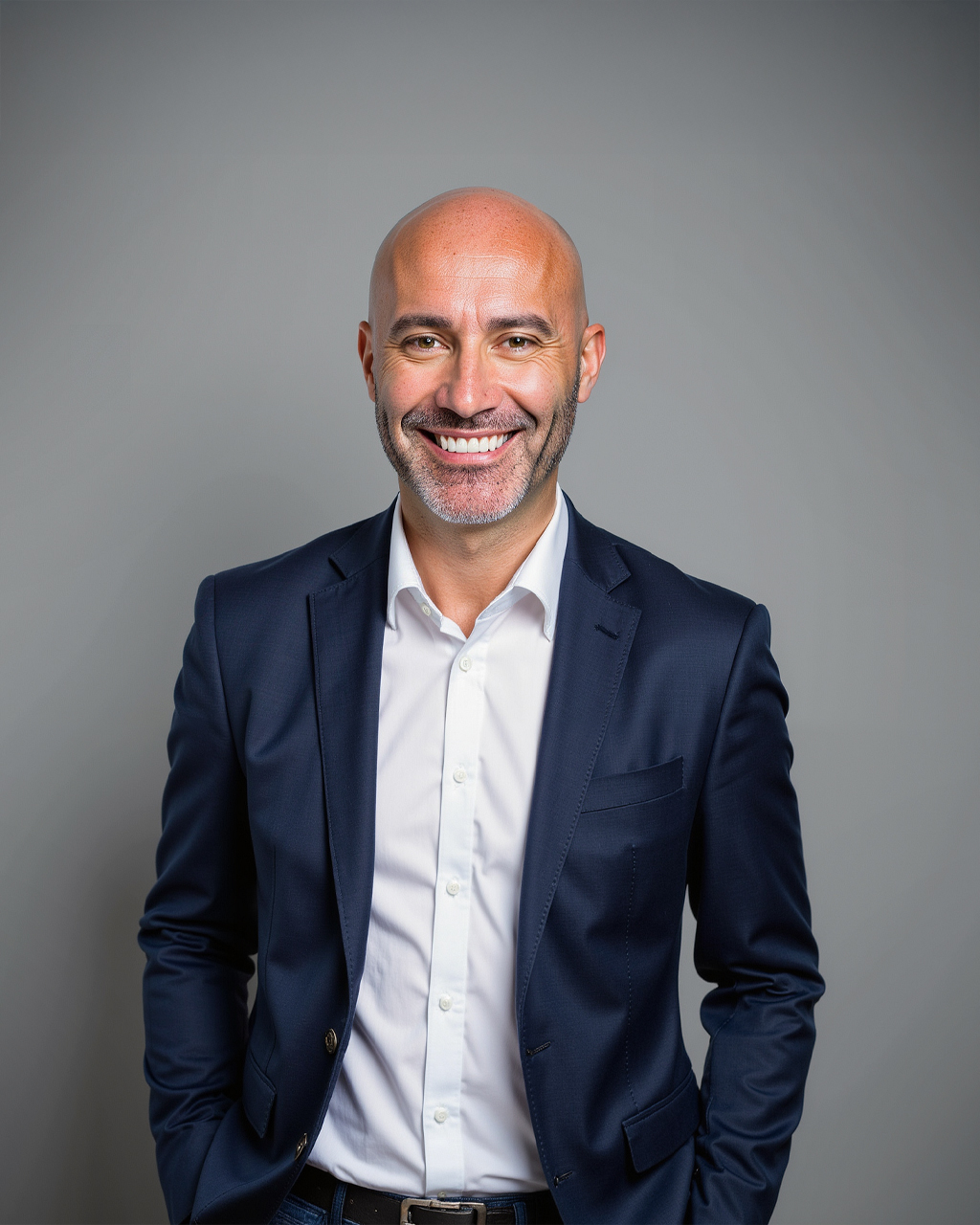
Program Director Jason Walker named inaugral co-editor-in-chief of new journal advancing higher education scholarship
Dialogues in Higher Education: Delivery and Impact will launch this year by the Independent Degree Granting Institutions of British Columbia
Still wondering?
Do you want to know more about Adler University before applying? Learn more about the University, explore programs, view admissions requirements, and review available scholarships.


